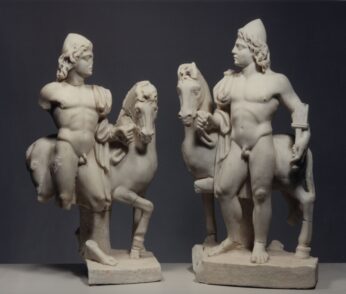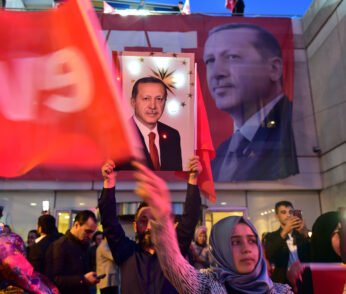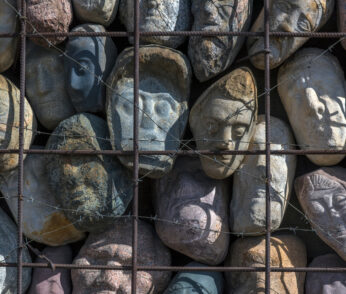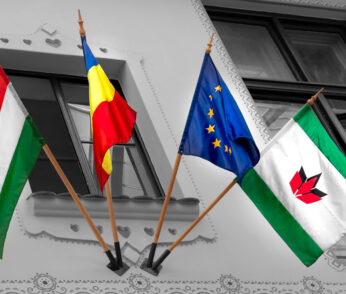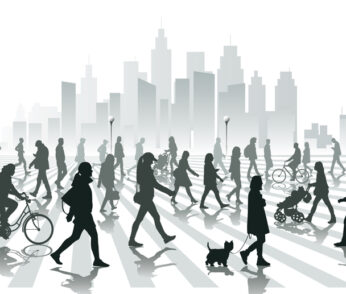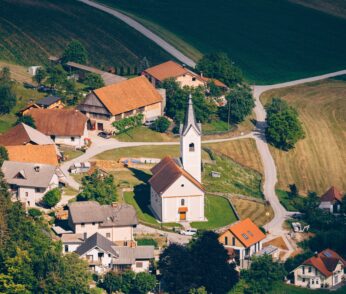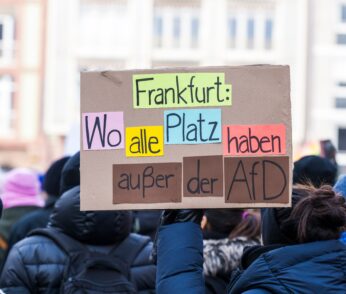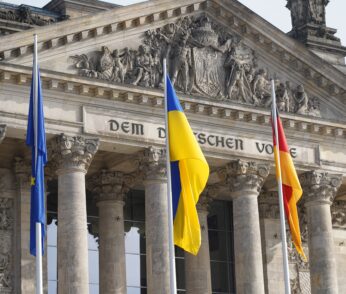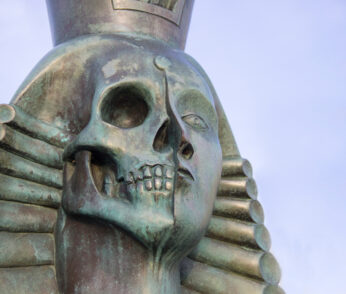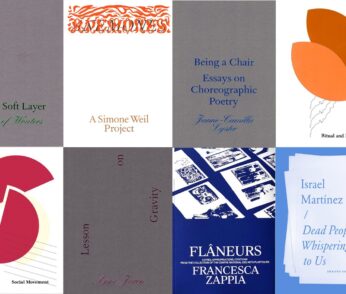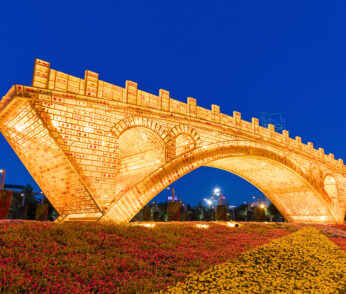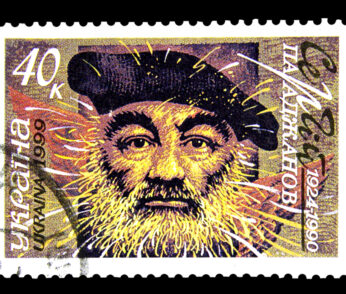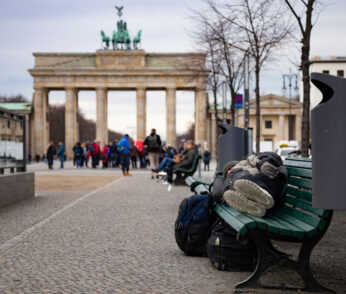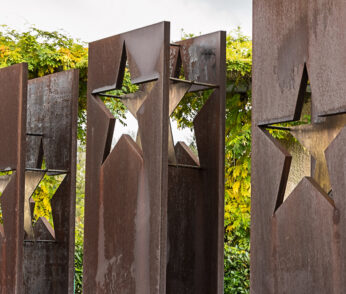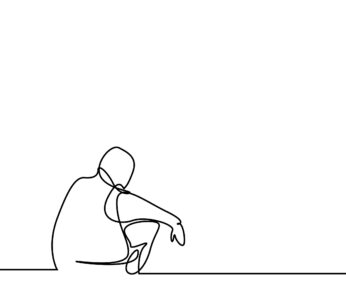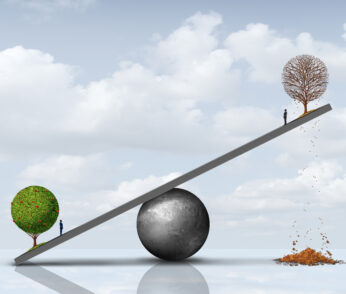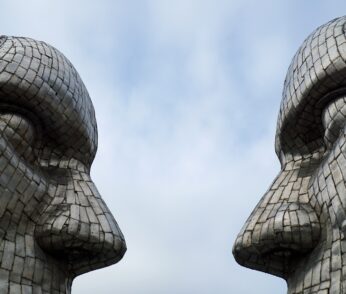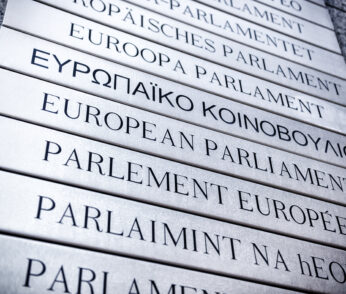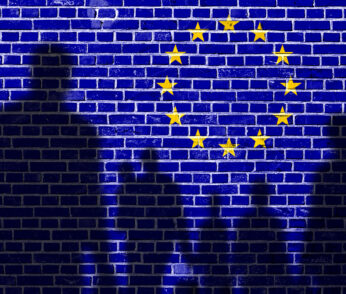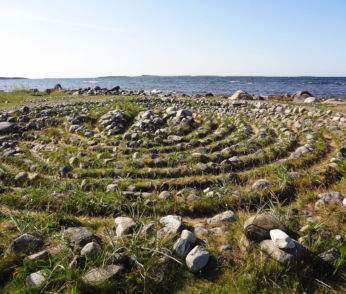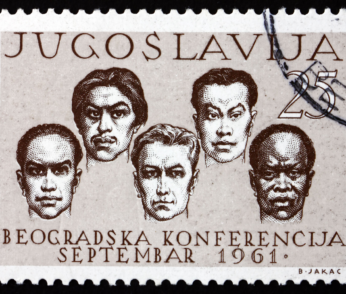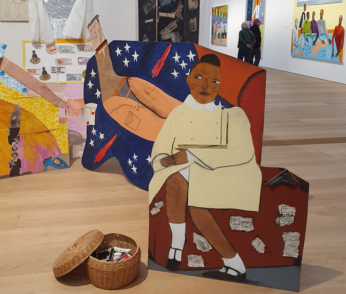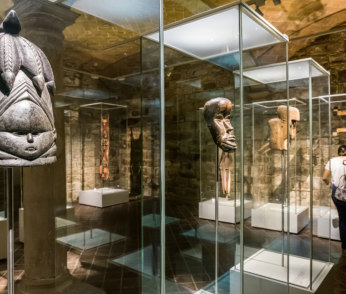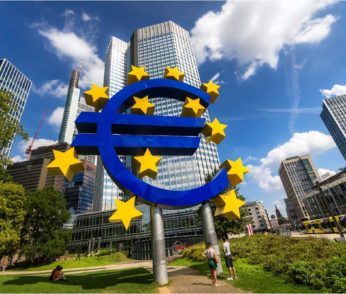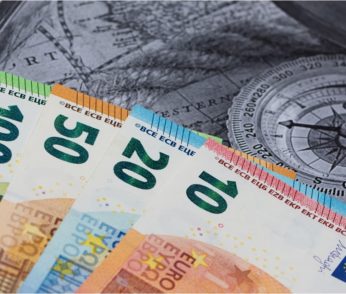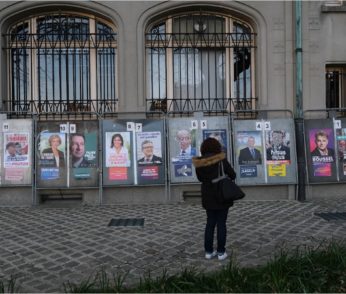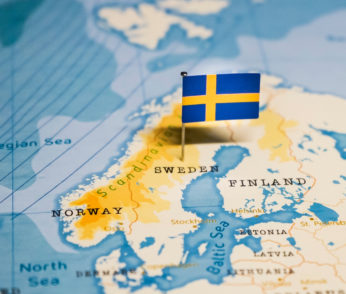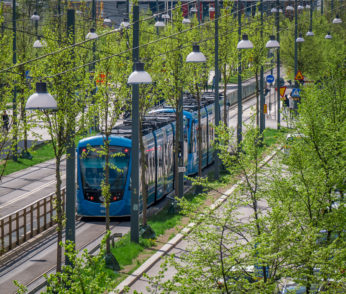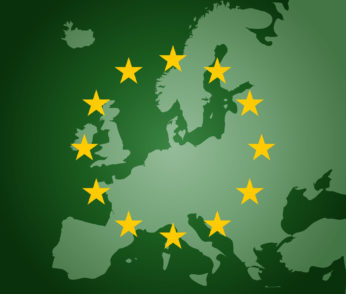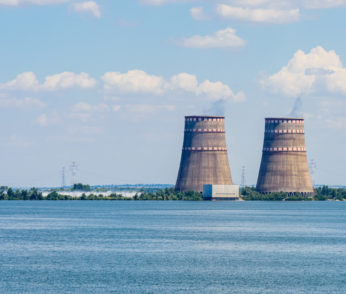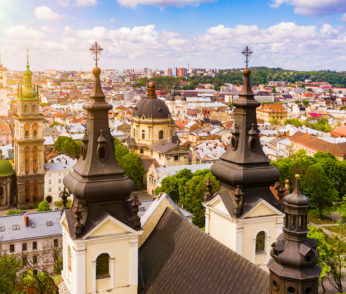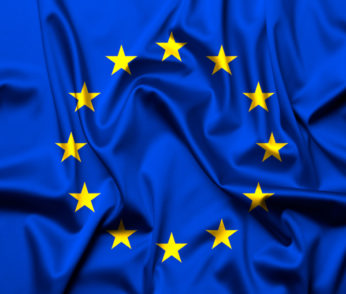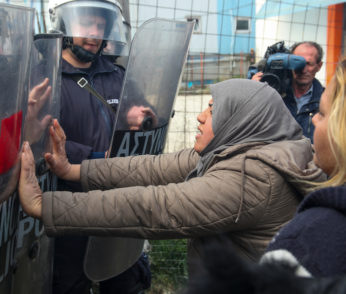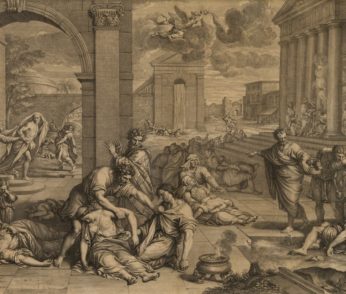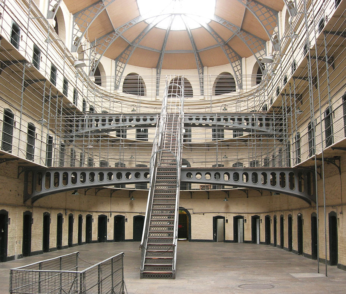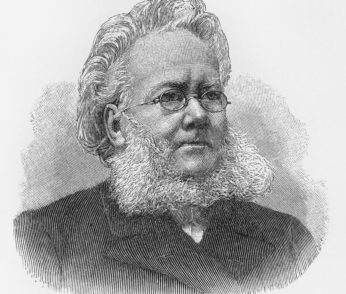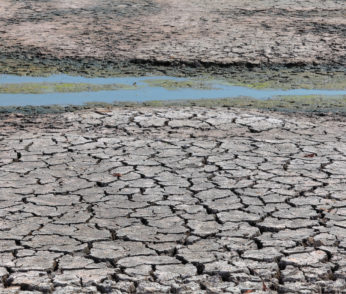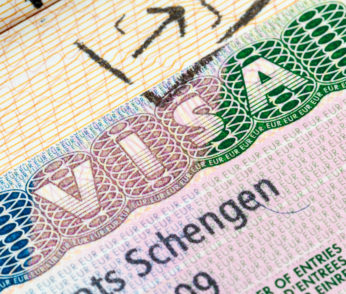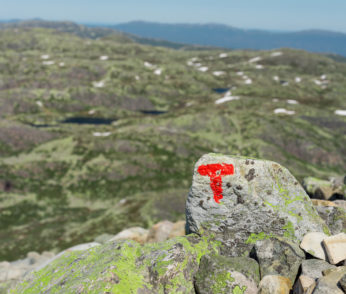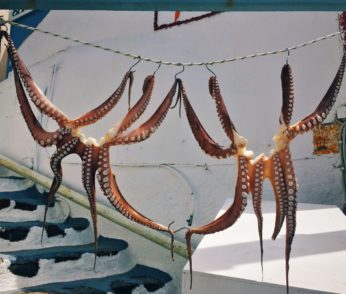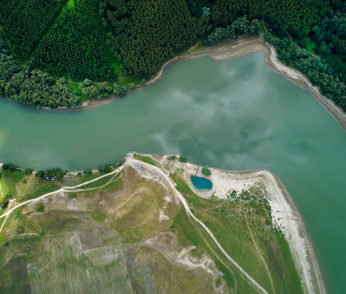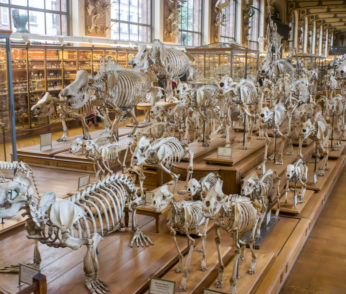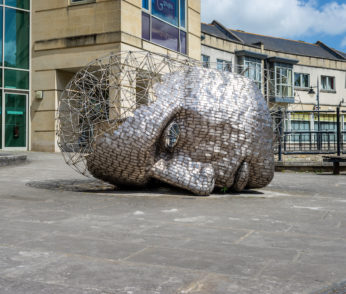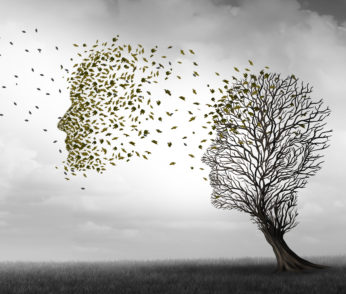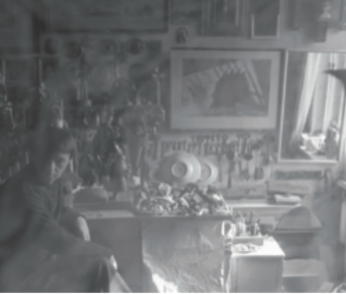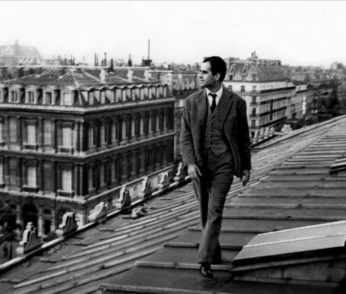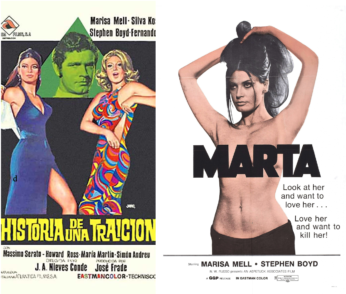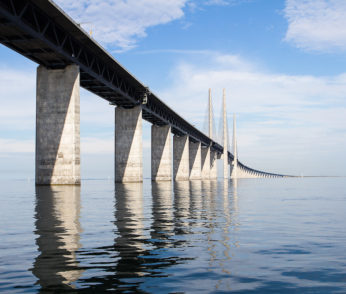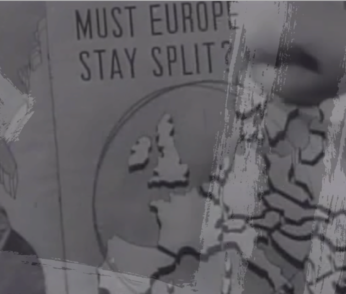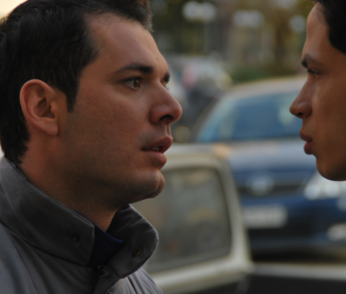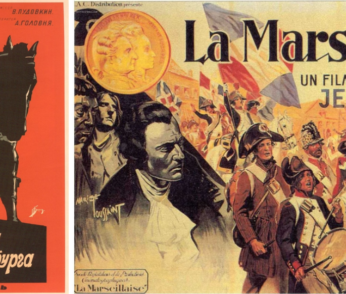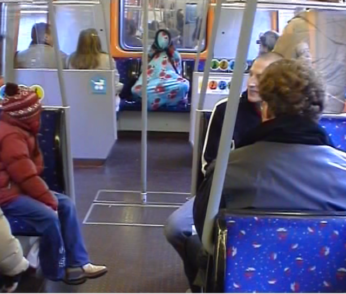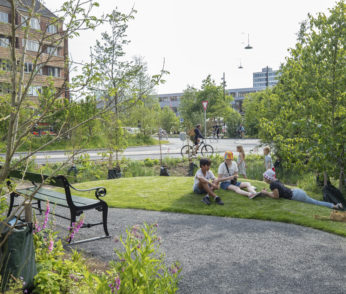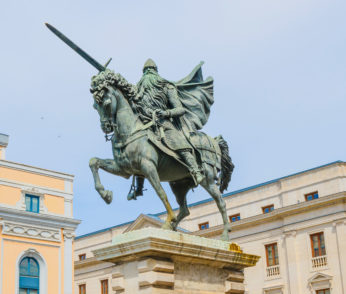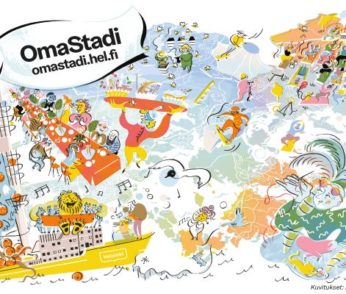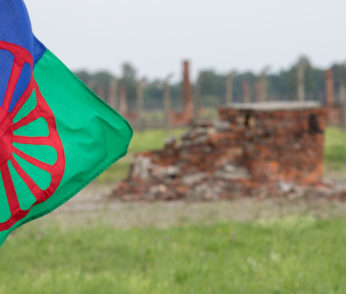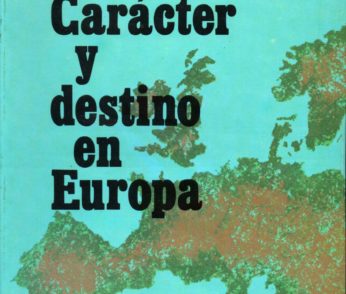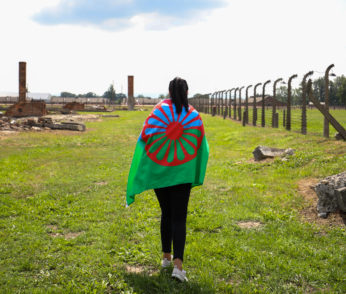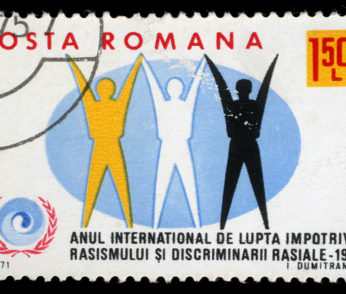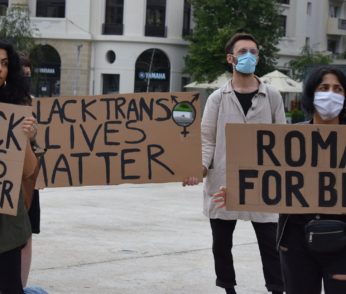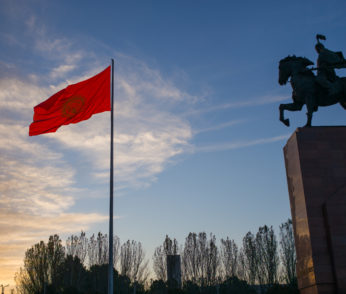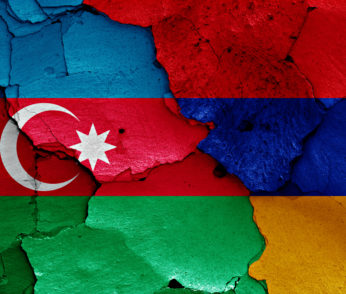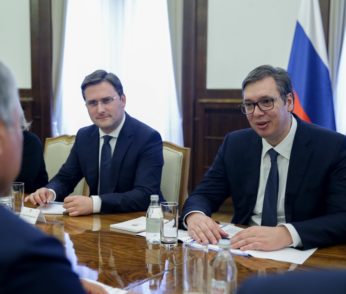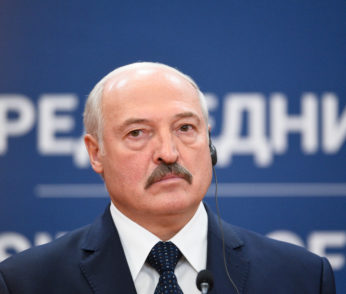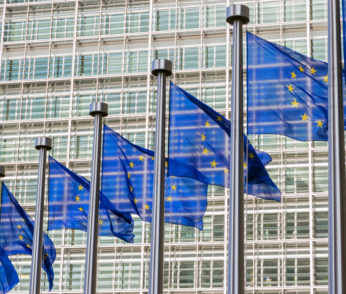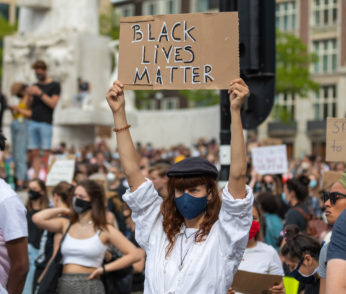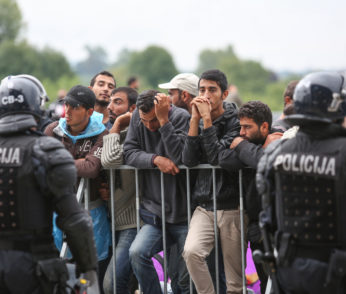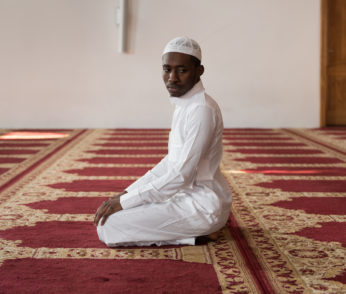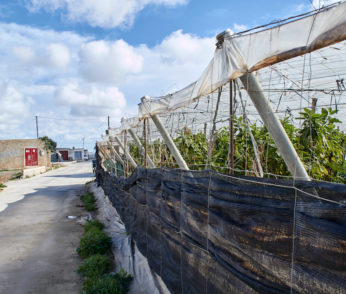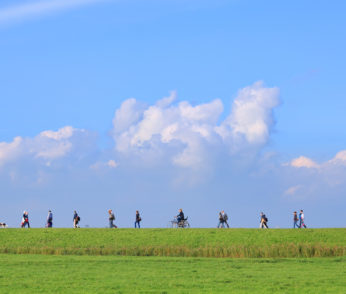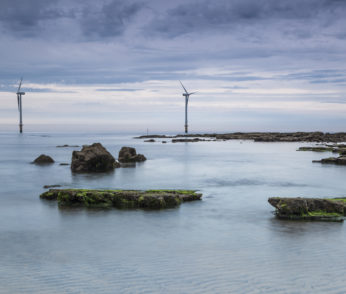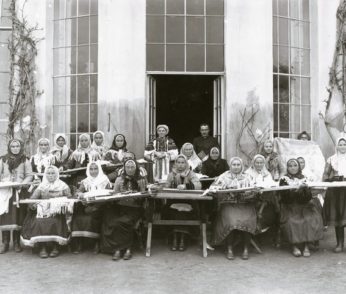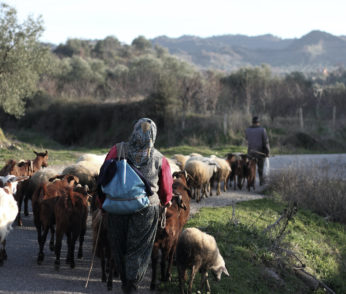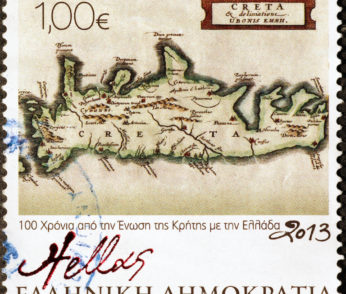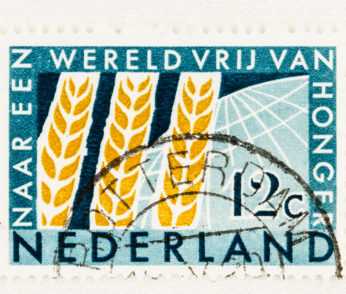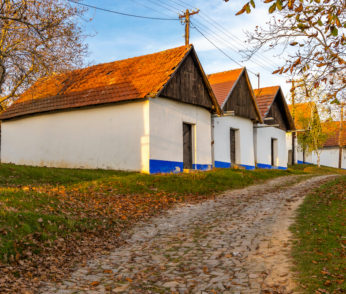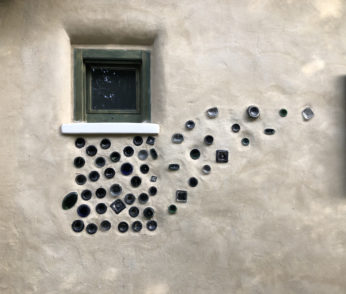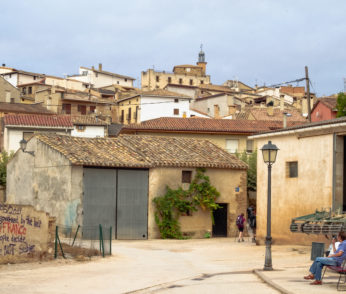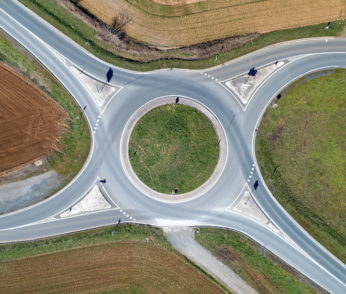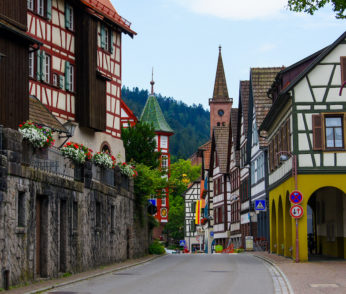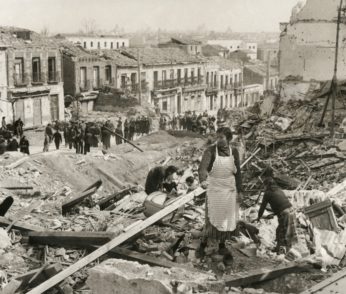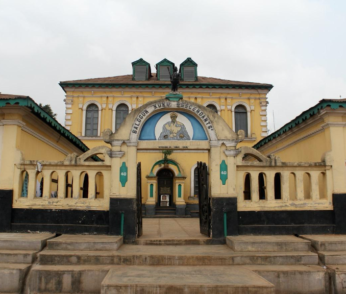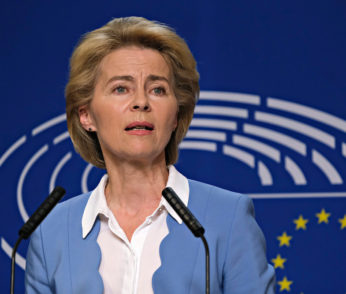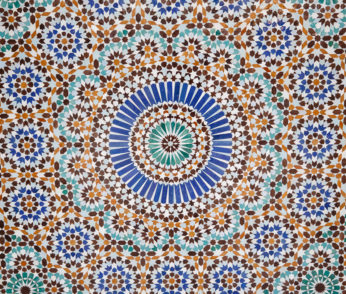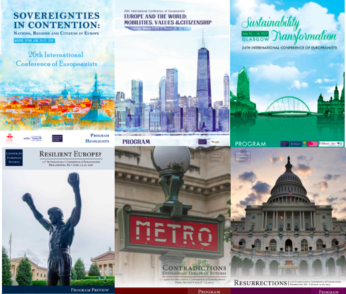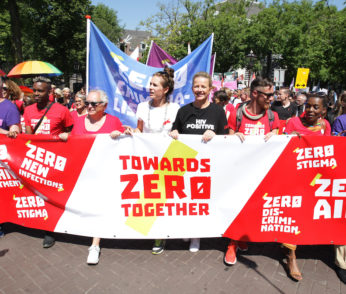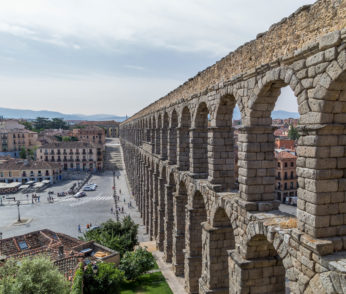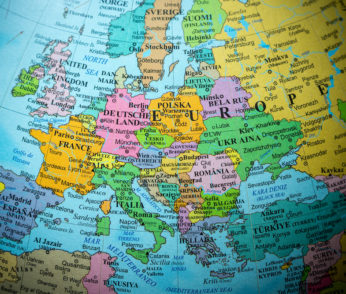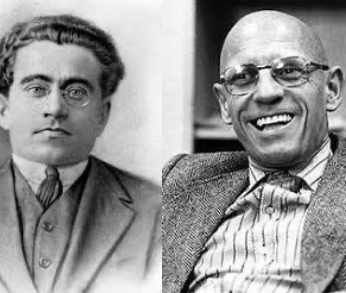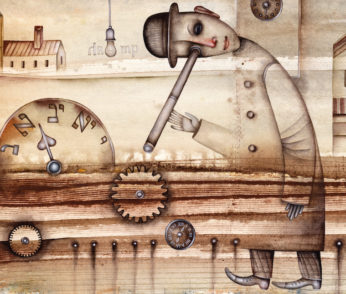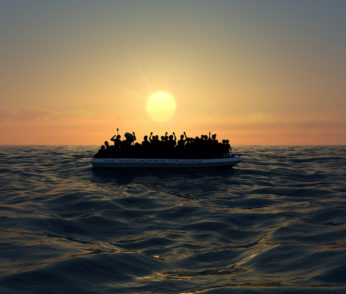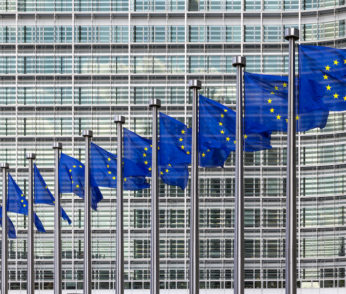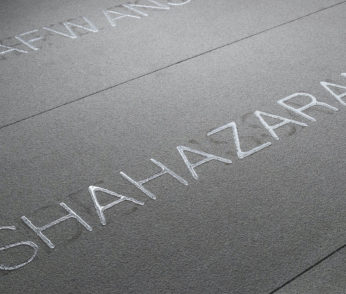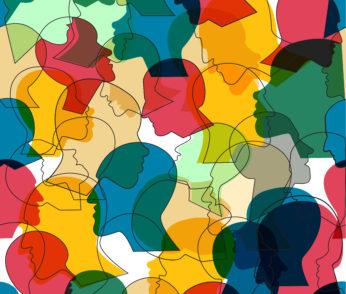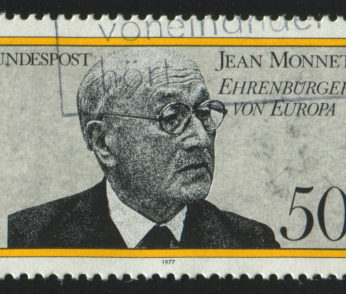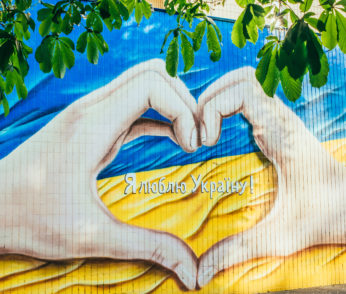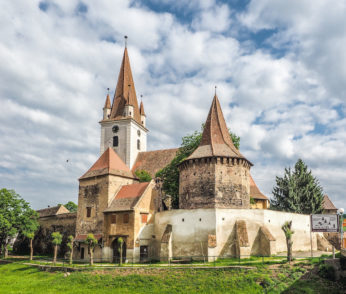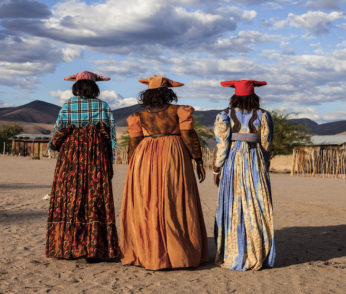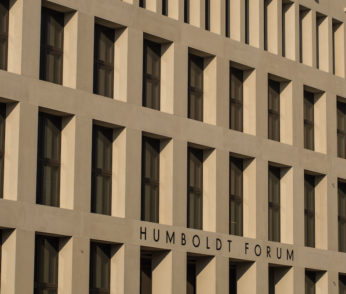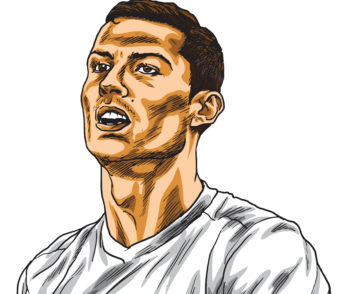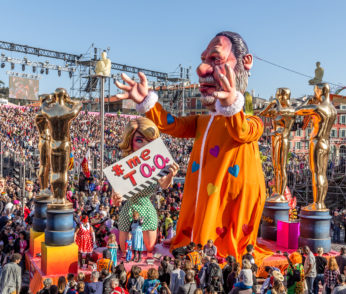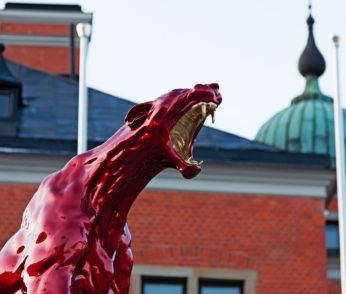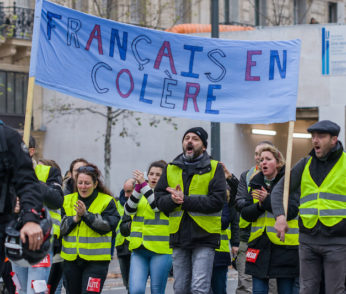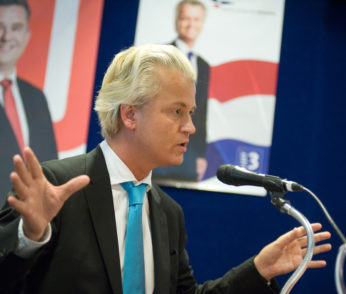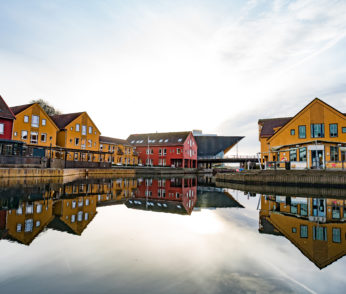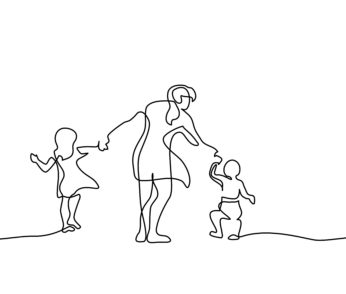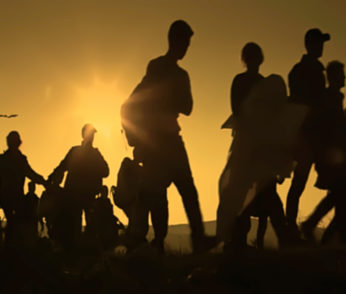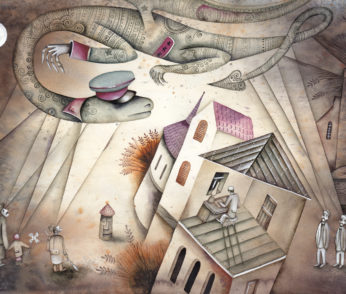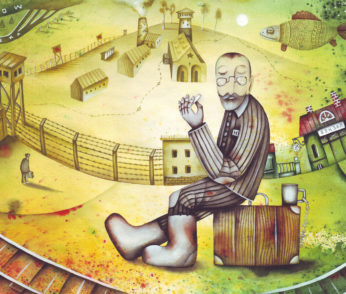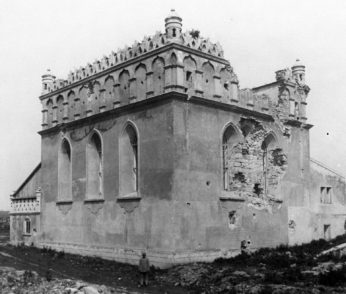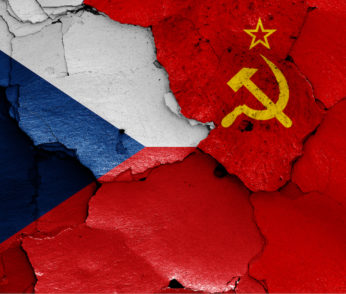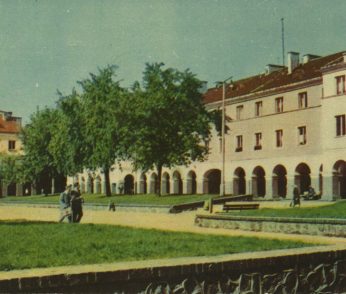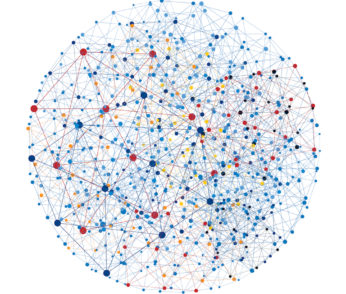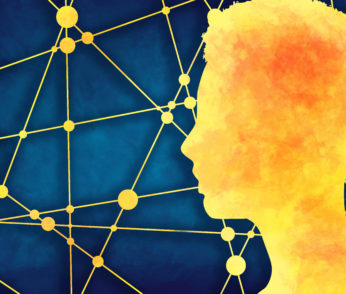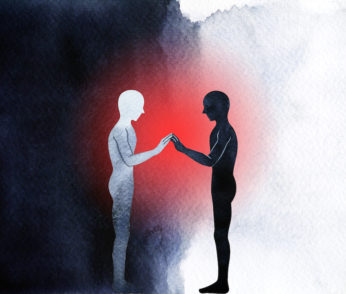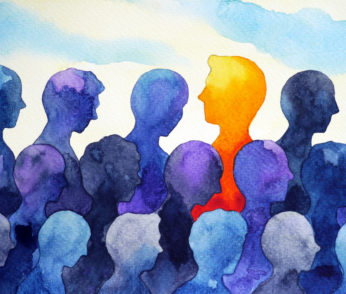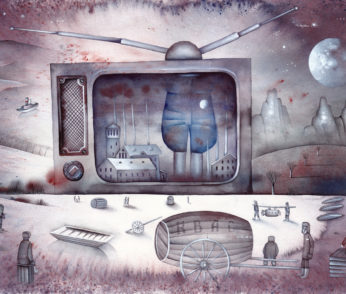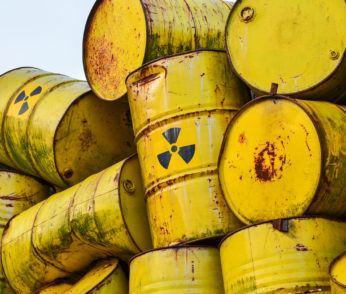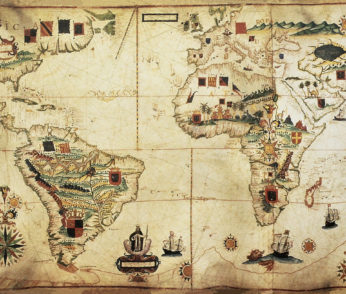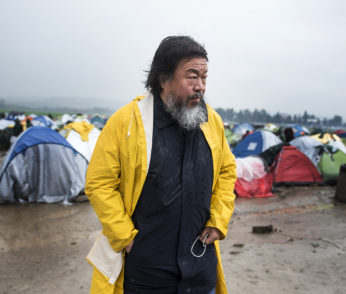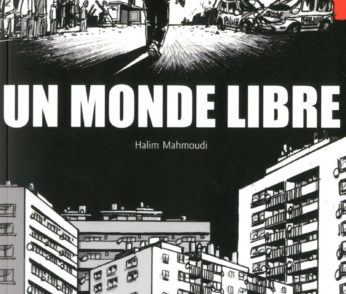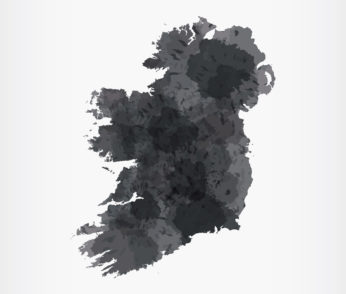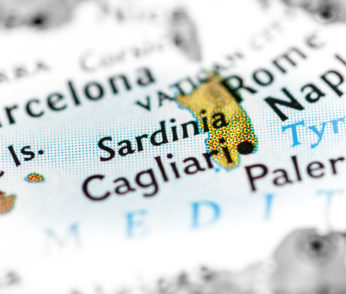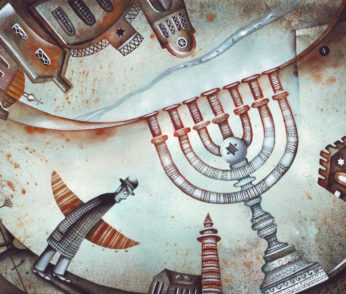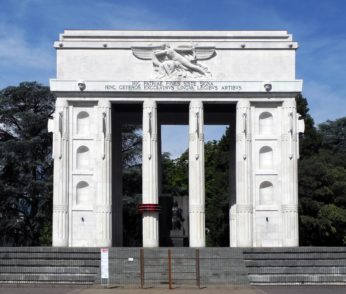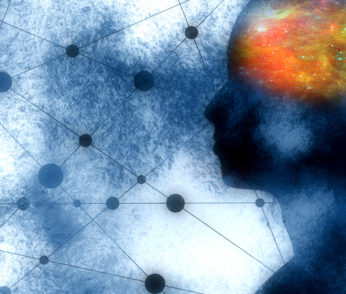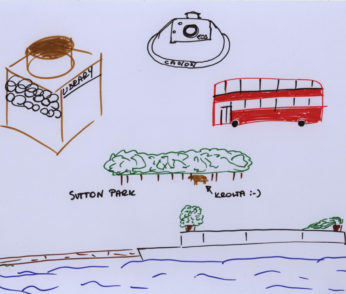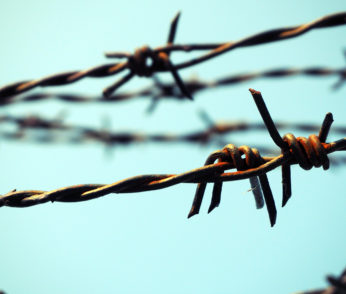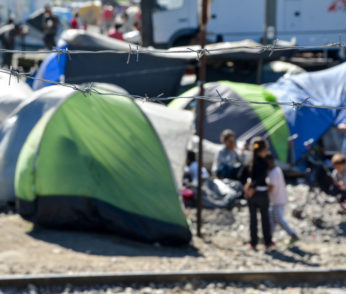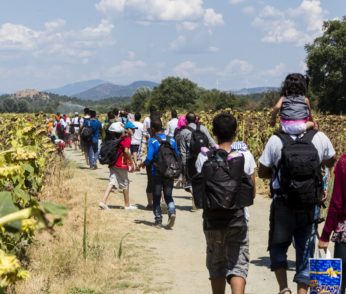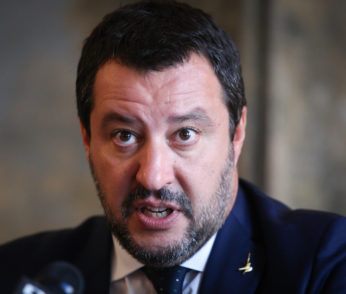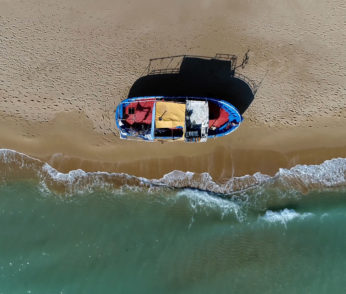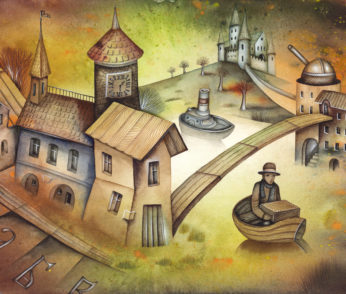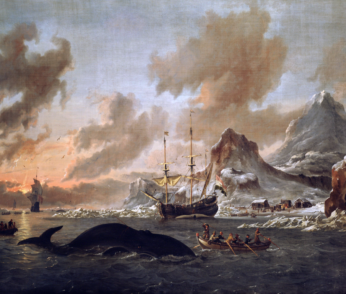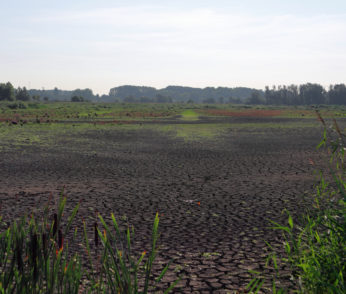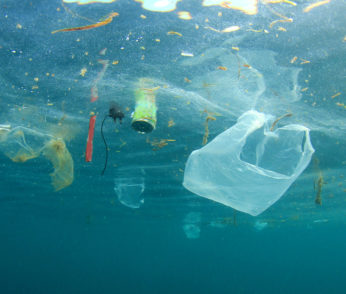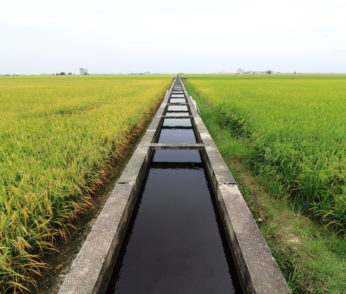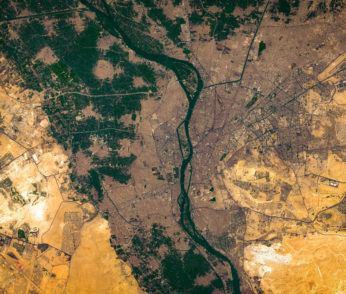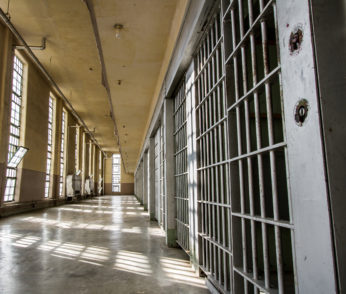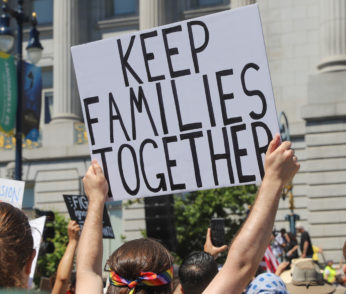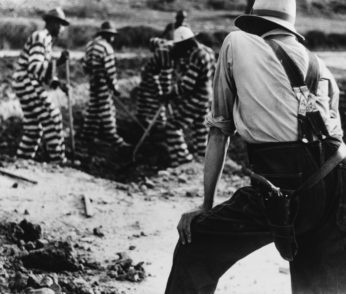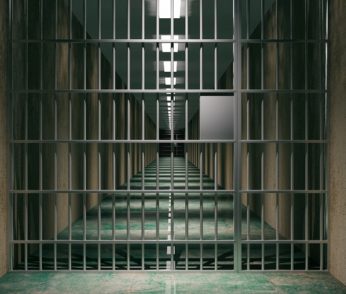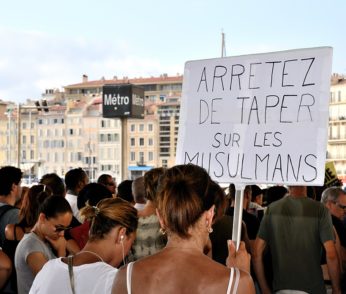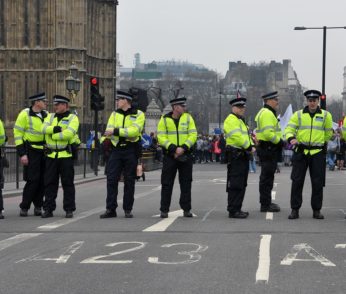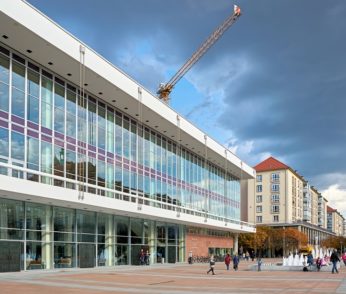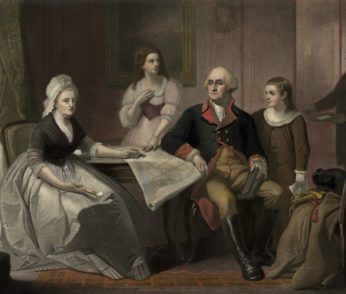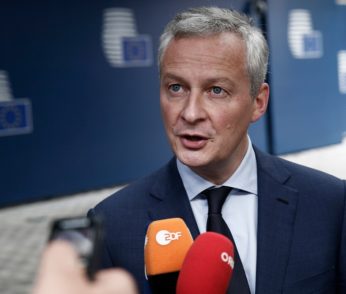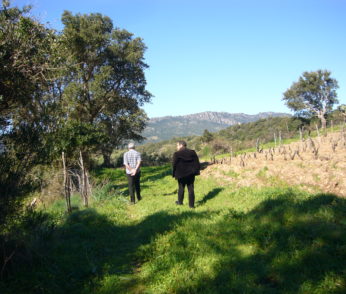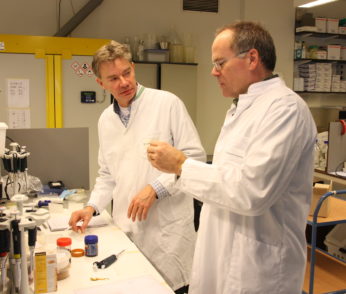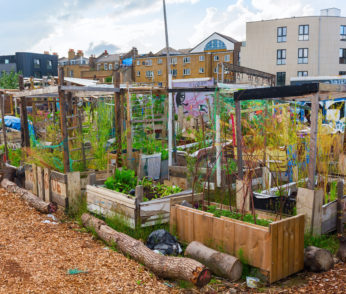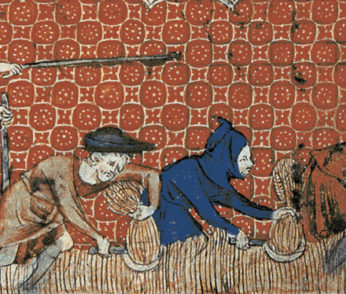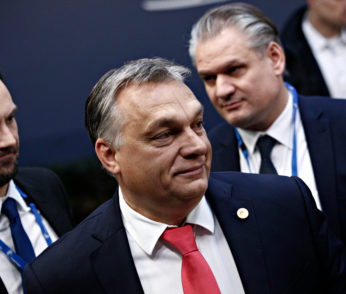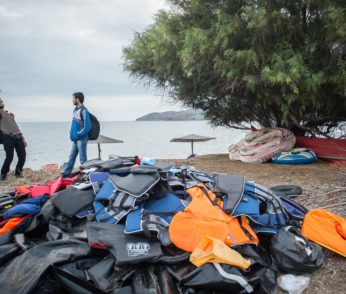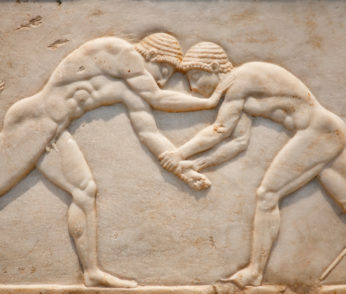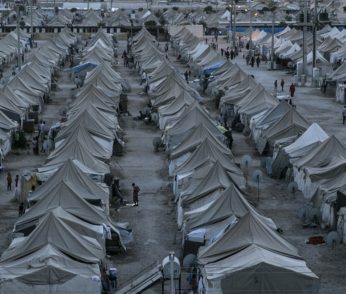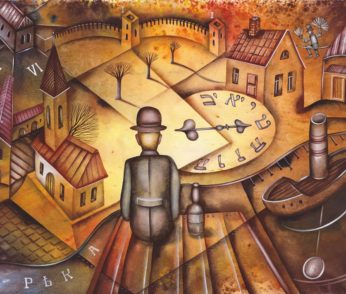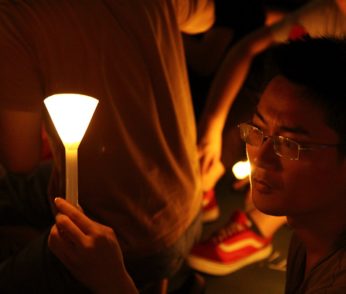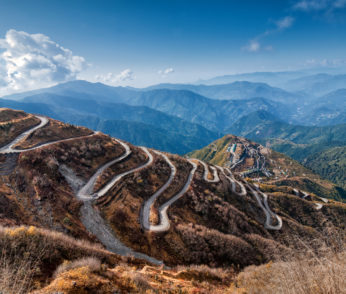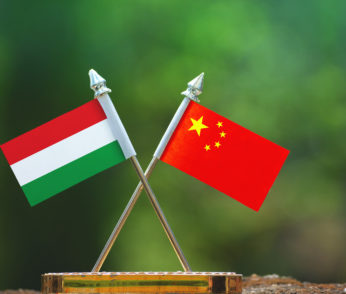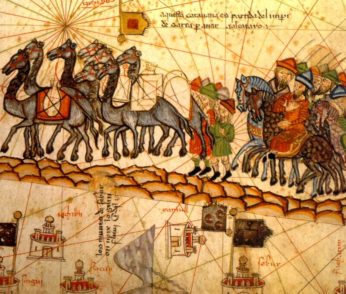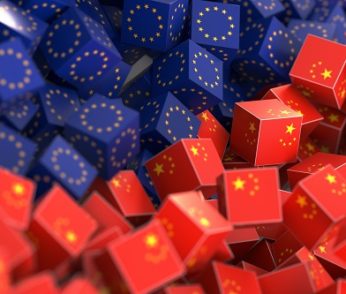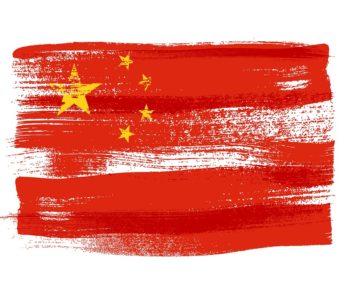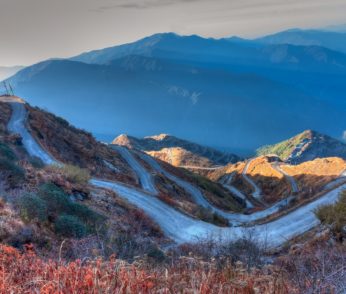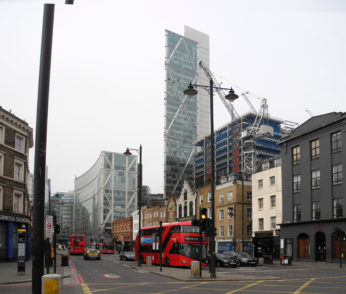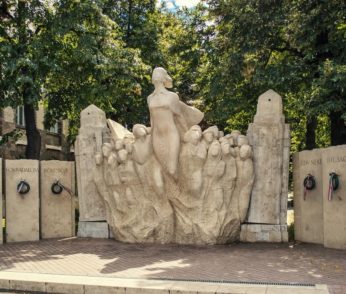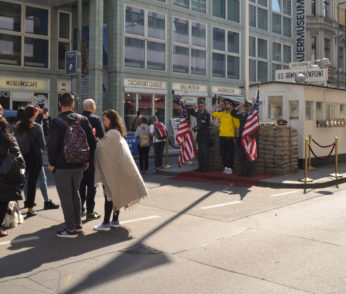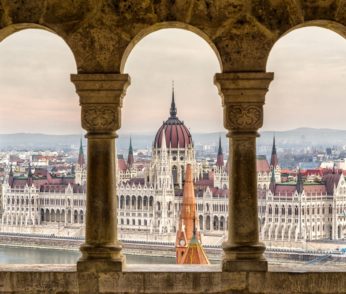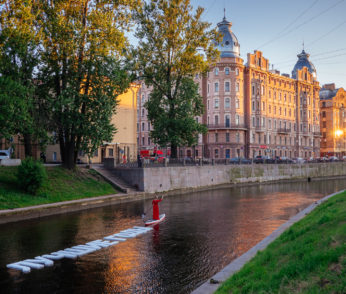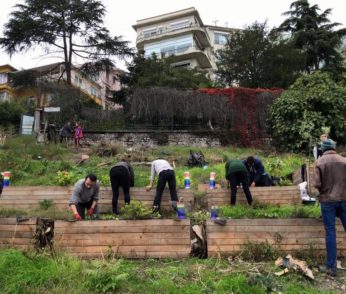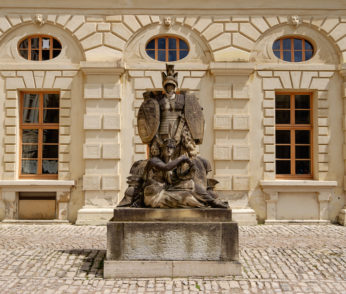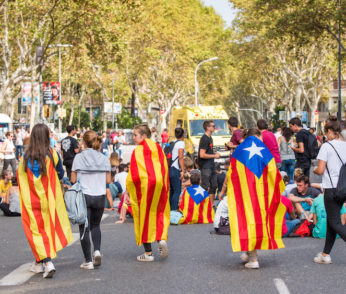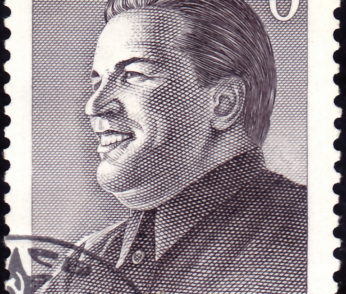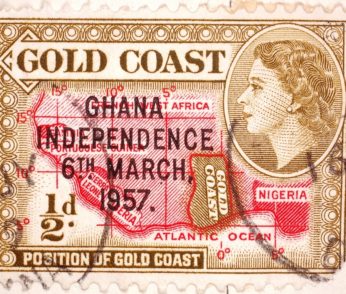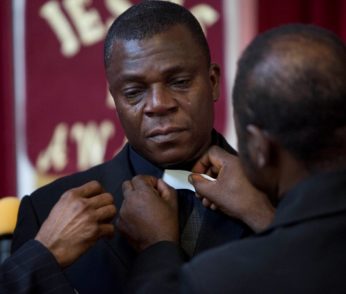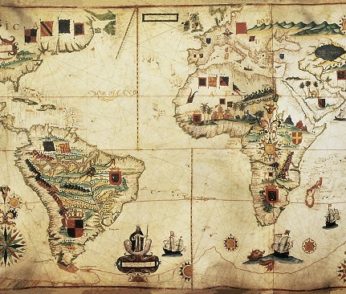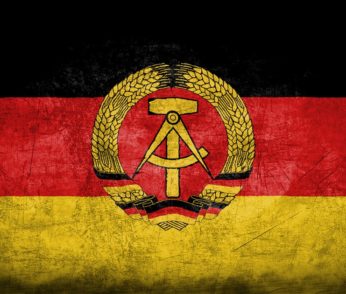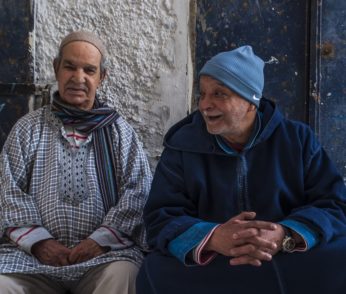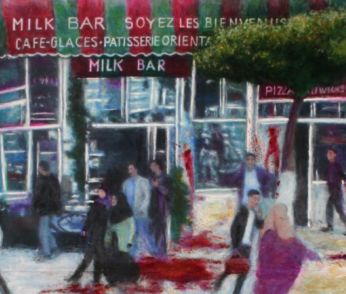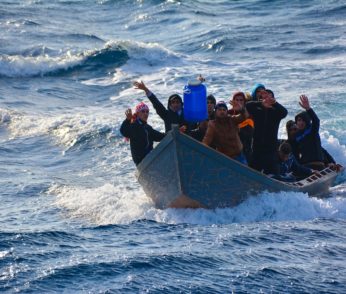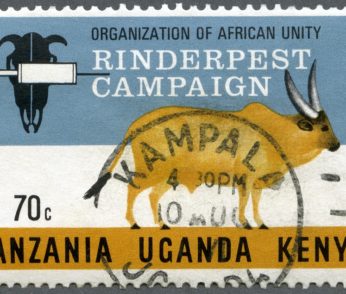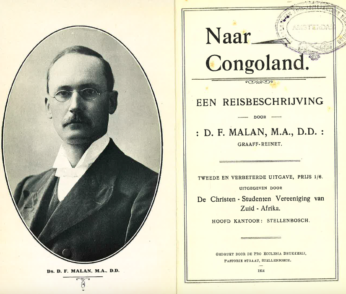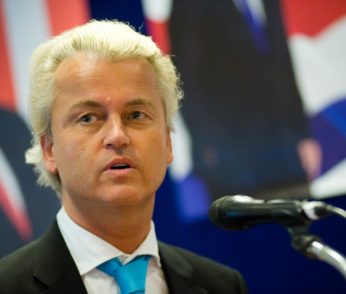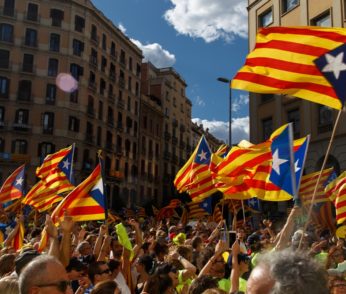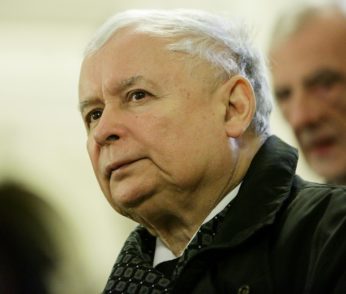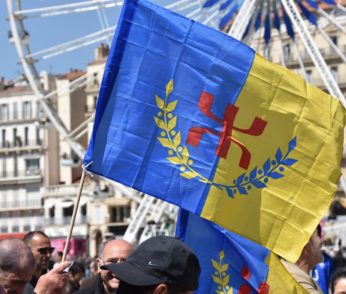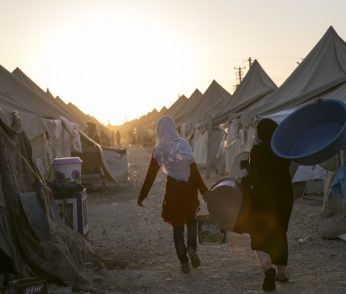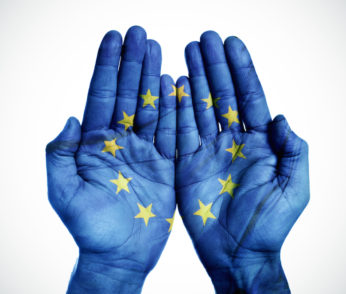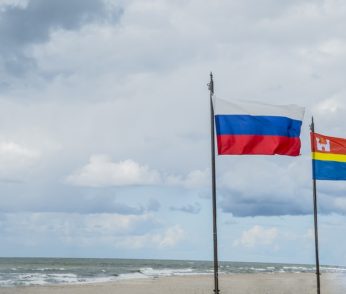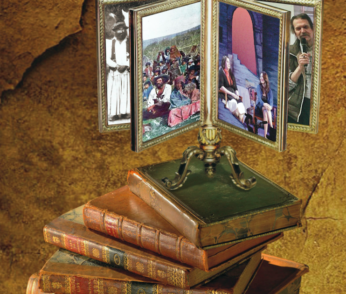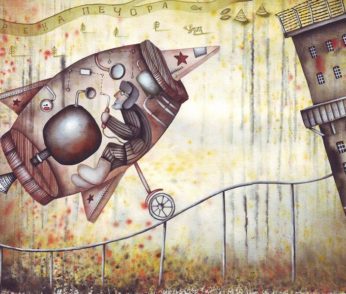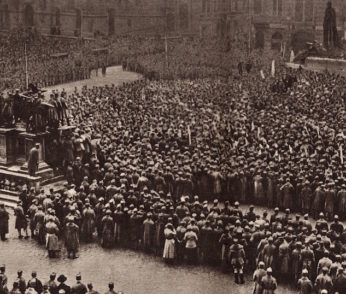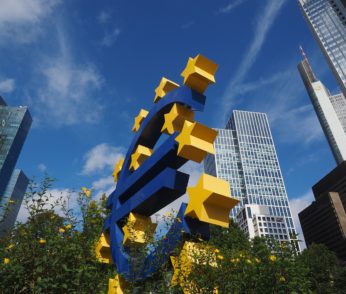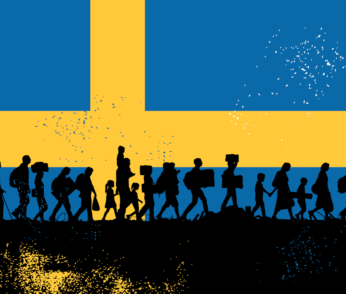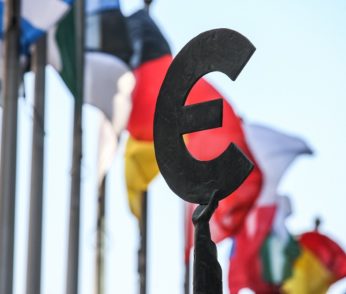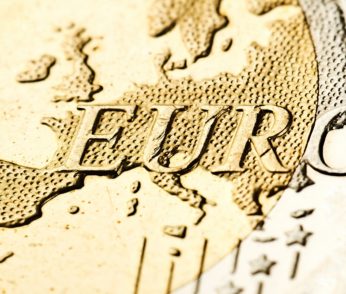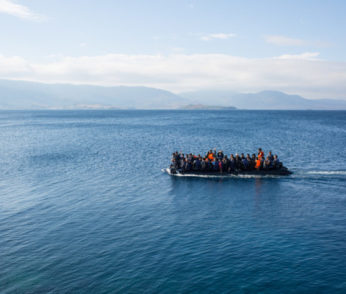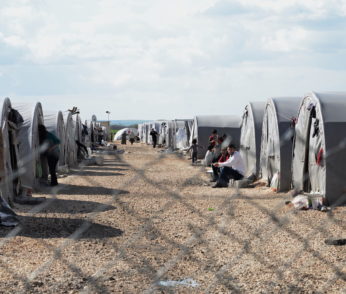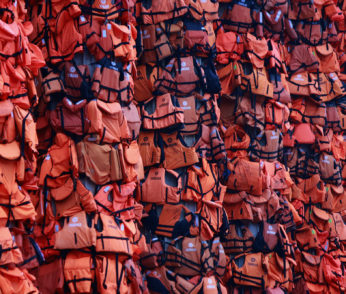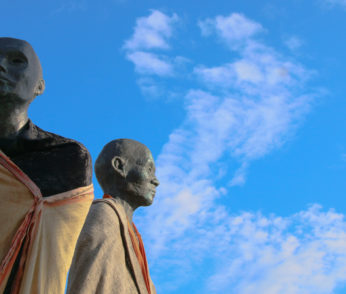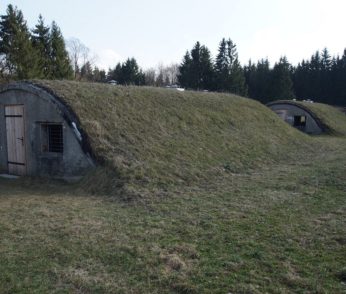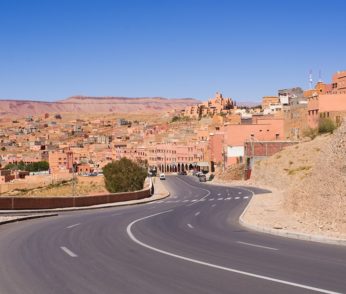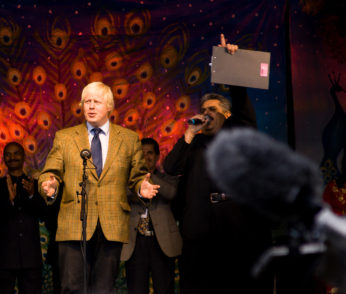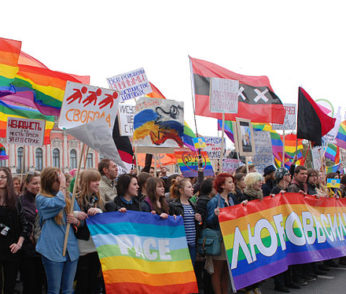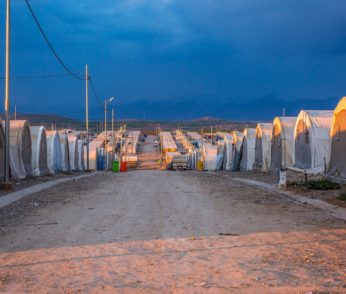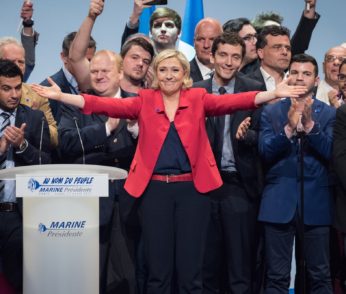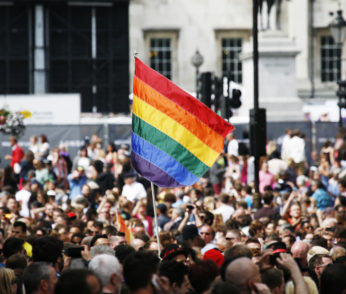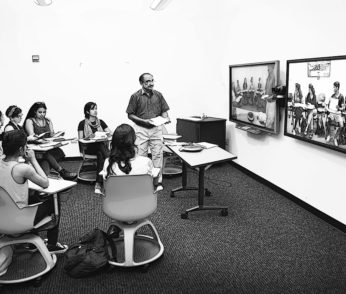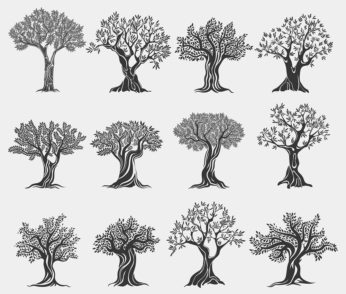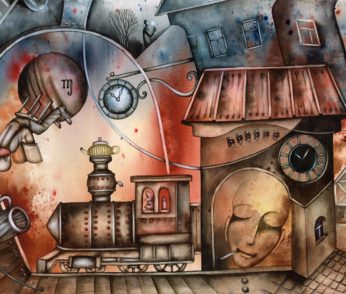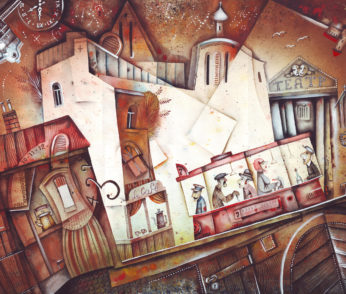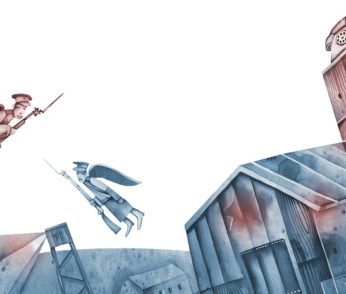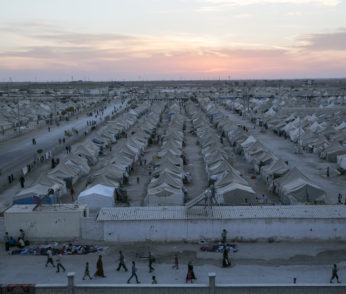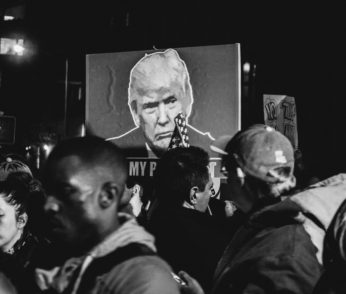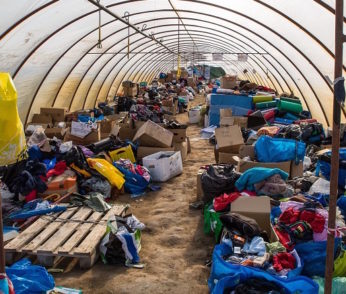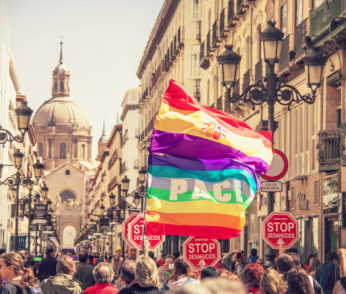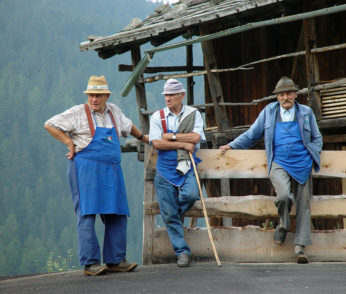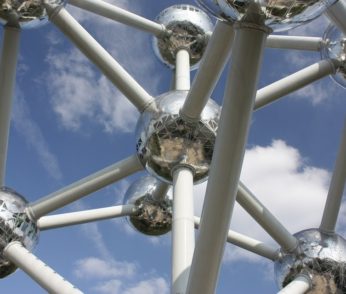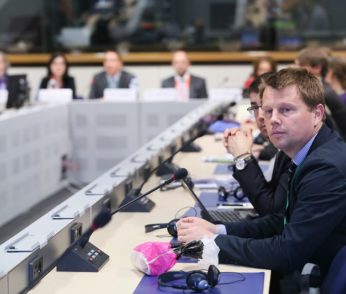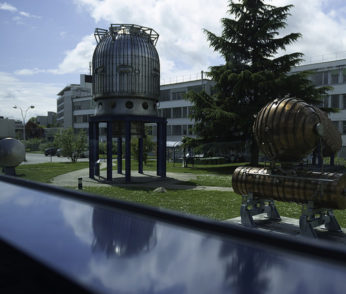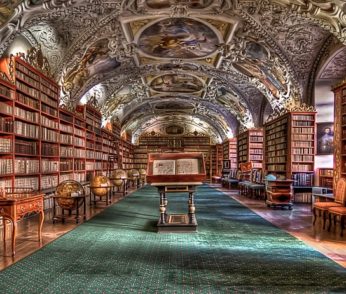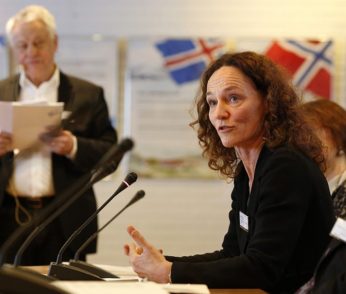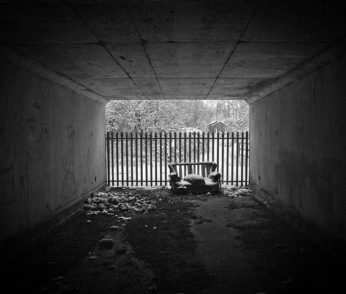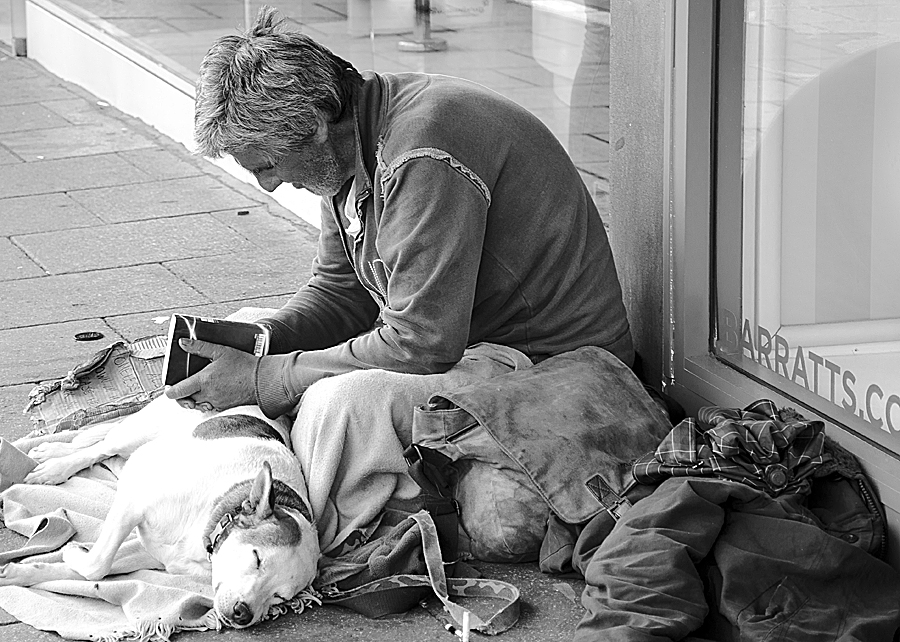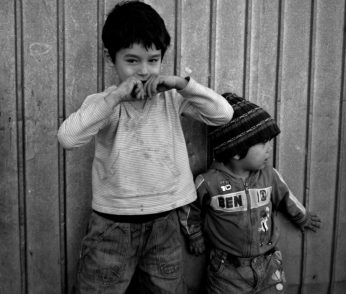By Beatriks Rabinovych, Olha Lushankina, Gökce Yurdakul and Jonna Rock More than three years have passed since Russia invaded Ukraine in February 2022. In response, the European Union swiftly activated the Temporary Protection Directive for the first time since its adoption in 2001. In March 2025, around 6.37 million displaced Ukrainians were registered across Europe. In Germany, the country with the largest number of registered refugees, there were around 1.2 million as of 31 May
trauma
By Christos Tsirogiannis
Hundreds of rare and unique ancient objects have been repatriated over the past two decades (e.g., Watson and Todeschini 2006, 298) to the countries from where they had been looted post-1970, in violation of the UNESCO 1970 Convention.
By David P. Baker and Justin J. W. Powell
Europe has twice played a pivotal role—at critical junctures—in the development of what can fittingly be described as global mega-science, without which the world’s STEMM knowledge would be significantly less advanced than it is now.
By Metehan Tekinırk and Dylan Irons
The question of how Erdoğan’s immigration and naturalization policies relate to his party’s domestic objectives deserves more attention. We explain the Turkish government’s logic in attempting to absorb a massive immigrant population amidst mounting economic challenges and increasing public opposition. How did Erdoğan-led administrations respond to a mass migration phenomenon that quickly transformed Turkey into a major transit and destination country?
By Lora Sariaslan and Claske Vos
Artistic practices are indispensable in addressing queries about what and who constitute “Europe,” because they express feelings of belonging and can make visible what the dominant consensus obscures and obliterates. Through their art, visual and performance artists in the former Yugoslavia invoke new transnational and transitional spaces of belonging in Europe.
By Veronika Ichetkina
The film is saturated with psychoanalytic meaning, illustrating not only the theory of Sigmund Freud, the founder of psychoanalysis, but also theories by present-day psychoanalysts of the French and British streams.
By Oksana Ermolaeva
Before the great purge, changes in the legislature had already prepared the Soviet justice system for the Terror. In particular, various extrajudicial bodies were created to investigate “political crimes,” in complement to the existing Soviet legal structures. In the USSR, political—or “counter-revolutionary”—crimes were defined as those against the state and outlined in Article 58 of the 1922 Soviet penal code.
By David Smith and Craig Willis
European frameworks made space for transnational activism focused on stronger rights and protections for national minorities.
By Mikko Rask
Imagine a Europe where cities compete not for wealth or resources but for the title of most democratic city.
By Matej Nikšič and Nina Goršič
Placemaking contributes to the creation of vibrant public spaces that serve as focal points for community interactions and cultural exchanges in rural areas. It fosters social connections, boosts civic pride, and enhances the overall attractiveness of rural areas.
By Alexander Leistner
This year will determine whether the political shift to the right can still be halted and the tipping points in democratic culture prevented.
By William Glenn Gray
“The world afterwards is not the same as the world before,” intoned Chancellor Olaf Scholz to the Bundestag on February 27, 2022. In Berlin, the Russian assault on Ukraine reversed fundamental assumptions about the nature of international politics.
By Oksana Ermolaeva
This suicide note was written in Finnish from a Petrozavodsk prison in September 1937 by nineteen-year-old Atto Liesi, a native of Finland and a resident of Vyborg.
By Patricia Chiantera-Stutte
Since the 1990s, the increasing success and diffusion of dystopian literature and allo-histories have attracted the attention of political scientists. This “genre-blurring” literature offers new political and ethical perspectives on human relations.
By David Berridge
During art book fairs, book launches, readings, talks, and performances are programed elsewhere in the building, further emphasizing the importance of sociality, which arguably often trumps actual book sales.
By Barbora Valockova
The BRI and MiC 2025 are emblematic of China’s rise and have placed Europe in the middle of a geopolitical confrontation.
By Adrianna Hlukhovych
Because they are not mass produced, poetic films convey an aura of exclusivity that shakes ideological and political norms under certain circumstances. In the 1960s and 1970s in the Soviet Union, such exclusivity was remarkable both in terms of film aesthetics and film plots.
By Noriaki Hoshino
This paper explores how Japanese intellectuals have discussed the notion of the “New Middle Ages,” foregrounding the trans-regional, inter-disciplinary implication of the theme of Eurasia as it derives from debates implicating the connection between Europe and Asia, which I refer to as “the Eurasian intersection.”
By Holger Briel
For many decades, twentieth-century SF was arguably an Anglo-American cultural project, although works emanating from other national contexts had certainly participated in forging the foundations for much of SF before that time.
By Christoph Butterwegge
What does it mean to be unhoused or unsheltered in a prosperous country that defines itself as a social welfare state?
By Dion Kramer
The vast majority of EU citizens experiencing homelessness originally left their home country with the aspiration to find (better) work abroad and improve their quality of life. This fact helps us to connect homelessness to the very raison d’être of the freedom of movement principle in the European Union.
By Jörg Dittmann and Matthias Drilling
Until a few years ago, there were no data on homelessness in Switzerland, and homelessness was hardly researched there. Homelessness did not rank high on the social policy agenda or in poverty research either.
By Lindsay B. Flynn
Inequality is one of the defining issues of our time, and social scientists have consistently confirmed that housing is a key driver of contemporary inequalities. How then, should we talk about housing as part of a constellation of economic and social inequalities plaguing contemporary Europe? There are at least three ways to probe this question.
By Anita Rotter and Erol Yildiz
Viewing society from the perspective of postmigrantism means going beyond a binary understanding by re-interpreting the genealogy of people’s migration.
By Moritz Schramm
Postmigration societies are conceived of as polarized societies where ambivalence and antagonism between different agendas and actors are at the center of the political discourse.
By Markus Hallensleben
I propose a methodological perspective in postmigration studies that takes a participant-centered approach into account and includes manifold, subjective, and intersectional narratives of belonging.
By Cristina Blanco Sío-López
Debates in the European Parliament sent an early warning about the threat of addressing asylum policymaking from a repressive angle focused on security concerns at the expense of refugees’ fundamental rights.
By Marc Hill
Public exchanges and expressions of solidarity are critical to strengthen the agency of vulnerable people to act.
By Alexandra Birch
Saami coastal settlements were expropriated by premodern Europeans, who also eradicated Saami ecosystems, religion, and crafts.
By Laura Frey, Vincent Bababoutilabo, and Joel Vogel
People came to Berlin and had to act out the colonial fantasies of the exhibition’s organizers.
By Ana Sladojević
The anti-colonial aspect of the museum was mainly anchored in the prevailing socialist and nonaligned discourse of the time.
By Marie-Laure Allain Bonilla
Decolonial practices and thinking have been invented, experimented with, and promoted in Swiss art spaces for a couple of decades.
By Cresa Pugh
Theft becomes a political act through which resistance to conventional modes of possession and ownership is performed. By inverting the logic of criminality, Diyabanza remakes the museum as a space of inclusion.
By Christakis Georgiou
The drive to create the single currency in the late 1980s and 1990s is usually linked to the drive to complete the single market.
By Niels Selling
This article proposes that companies are more likely to weigh in on morality issues in America…
By Beverly Barrett
In recent years, a global democratic backslide, as well as the actions of Russia in Ukraine, have shined a spotlight on national governance in Europe.
By Magnus Feldmann and Glenn Morgan
Businesses are important economic and political actors, and it is important to understand their role in resisting or underpinning populist rule.
By Astrid Hedin
There has been a tendency to assume that the relationship between business and the welfare state is unequivocally adversarial.
By Xira Ruiz-Campillo
When questioning who should bear the most in facing environmental challenges, we tend to think about international organizations, states, or citizens. But what about cities?
By Maria Dolores Sanchez Galera
The new Green Deal shows how the EU is striving to update a wide range of instruments and adopt new policies to boost the transition towards a new economic system and an energy and industrial transition through four main pillars: carbon pricing, sustainable investment, a new industrial policy and a just transition.
By Elana Resnick
Images of the plant burning caused horror around the world. Many observers, including Ukrainian President Volodymyr Zelenskyy, evoked the specter of Chernobyl.
By Pauline Münch and Jörg Niewöhner
In the Anthropocene, more-than-human habitability on this planet is at stake. Societies must develop ways of existing within planetary boundaries.
By Larisa Kurtović
In the rugged and haunted lands of Bosnia-Herzegovina, rivers are places of extremes. Rousing of acute, aching love—the kind that inspires folk songs and popular devotion—rivers are often celebrated for their ability to ensure both survival and joy to the communities that live on their banks.
By Heidi Hein-Kircher
“Security” is a very general, but often used catchword of political discourses.
By Lesley-Ann Daniels
The war in Ukraine has brought Europe together as a political project with countries opening their arms to fleeing migrants. Likewise, when the Libyan regime collapsed in 2011, the previous controls on migration failed and people smugglers took advantage of the chaos to send thousands out to sea in flimsy boats.
By Marcus Nicolson
In recent years, social inclusion processes of migrants have been at the forefront of political debates in the UK and beyond.
By Georgia Dimari and Stylianos Ioannis Tzagkarakis
Research on the Greek migration experience has shown that new concepts are necessary in order to describe both the weaknesses of the current response mechanisms and the need to identify and formulate more specific solutions to the problems induced by massive migration and refugee flows since 2015.
By Andrea Carlà
Since the turn of the century, the concept of securitization has not only become a recurrent theme in scholarship on minorities in regard to both so-called “old” (national, ethnic, linguistic, and religious) minorities, as well as new minorities stemming from recent migratory flows.
By Thomas Henökl
Digital Transformation is advancing, virtually at light speed, and has a series of repercussions on people’s lives and livelihoods. Disruptive innovation is causing turbulence…
Globalization in Modern English Literature and its Medieval Roots: A Comparative Literature Approach
By Christene d’Anca
Medieval genealogies rose out of the need to elevate one branch of a population…
By Félix Jourdan
In France, the question of animal slaughter has been largely publicized by the animalist association L214. Throughout the past ten years, they have frequently published online images of slaughtering taken by hidden cameras.
By Michele Chinitz
The most staged dramatist after Shakespeare, the Norwegian playwright Henrik Ibsen is regarded as the father of modern drama. A Doll’s House is his most popular play.
By Barbora Šedová and Lisa Thalheimer
The number of forcibly displaced people has been steadily on the rise. In 2015, over one million refugees and migrants reached Europe, the largest fraction of whom were fleeing the civil war in Syria.
By Isabel Hilpert
In spring 2021, events in the Spanish exclave of Ceuta dominated international headlines for a few days, presumably due to an upset over the behavior of the Spanish government in the context of the Western Sahara conflict in which the Moroccan government loosened border controls with the European Union.
By Sean Ireton
Ecosophy thus implies an “identification so deep that one’s own self is no longer adequately delimited by the personal ego or the organism…”
By Shira Shmuely
The plausible inclusion of cephalopods and crustaceans in animal welfare legislation reveals the central role of science in shaping the moral and legal obligations towards nonhuman animals.
By Prudence Gibson and Sharon Willoughby
Banksia serrata (B. serrata) is a species of native Australian tree that catches stories of colonial dominion, botanical naming controversies, and Indigenous knowledge in its branches.
By John Charles Ryan
In its radically-open otherness, lichens materialize more-than-human wisdom—the knowledge of the world expressed by intelligent beings other than humans.
By Vicente Raja
To show that (at least some) plants are able to exhibit goal-directed behaviors to cope with their environments may have dramatic implications for our understanding of plants as biological systems, but also as cognitive, or even sentient systems.
By Matthew D. Miller
A hydrocentric mapping of Europe’s rivers, seas, and watersheds yields a refreshingly defamiliarized continental cartography
By David A. Fennell, Bastian Thomsen and Samuel R. Fennell
Dark tourism, or thanatourism, is a complex subset of the tourism industry, which capitalizes on human death and suffering from human and environmentally induced events.
By Nandita Biswas Mellamphy
Problematizing AI in light of posthumanistic critiques would be beneficial in confronting questions of whether nonhuman intelligences can be conceptualized in terms other than humanistic.
Remembering and Forgetting in Transit: The Interplay between Physical Spaces and Memory and Identity
By Adam D. Brown and Alexa L. Elias
Every year, millions of people are confronted with violence, environmental disasters…
By Olga Sezneva
While the fate of the German population displaced in the former East Prussia, today’s Kaliningrad Oblast, has attracted considerable scholarly attention, less is known about the property and personal belongings left behind or “proprietary emotions,” and material feelings of Kaliningrad’s new occupants.’ What emotional responses did the forcibly acquired things produce in their new owners? How did these feelings initially form and gradually change, and under which conditions?
By Peter Verstraten
Traditionally, art cinema has been used as a term of endearment to pit European cinema as the “good” object against Hollywood as the commercial giant.
By Irina Herrschner and Benjamin Nickl
The blueprint of a house precedes its construction. That much is clear. With a European Project that started in 1950 as the European Coal and Steel Community, a common culture was that blueprint, and it was meant to construct a union of all and for all: in a shared culture that was alive and thriving.
By Anne-Marie Scholz
In 1992, Richard Dyer and Ginette Vincendeau published an edited volume of essays entitled Popular European Cinema. The notion was new at the time, they argue in the introduction.
By Michael Gott
In recent years, borders and borderland settings have proliferated in European television, arguably making the “border series” a category of its own. HBO Europe’s Polish series Wataha (2014-) was translated as The Border for its 2016 UK release.
By Randall Halle
Already during World War II, leading European cultural figures oriented themselves toward a post-war future in which a federation of Europe would become a reality.
By Philip E. Phillis
Prospective audiences may be at a loss if they try to conjure in their minds an Albanian film, especially since production has gained momentum only in the last twenty years.
By Hester Baer and Jill Suzanne Smith
the fall of 2019, the European Film Academy announced its creation of a new award category, one that would allow the EFA to “remain relevant” in the eyes of younger viewers and in light of clear changes in visual media creation and distribution.
This is part of our special feature on European Culture and the Moving Image. “Precarity” and “the precariat” have become two of the buzz words in studies of neoliberalism’s restructuring of the global economy and of the human sensorium. Originally signifying a social condition linked to poverty, precarity now refers to the rise in flexible and precarious forms of labor, the growth of the knowledge economy, the reduction of welfare state provisions, the suppression
By Casey Harison
Vsevolod Pudovkin’s The End of St. Petersburg (1927) and Jean Renoir’s La Marseillaise (1938) are beautifully filmed and timeless stories that continue to hold the attention of the viewer almost a century after they were made.
By Lora Sariaslan
The first section of Nilbar Güreş’s video Stranger (Yabancı, 2004-2006), titled “Person of Cloth” (fig. 1), documents a woman on the Vienna subway covered in blue and red floral cloth that wraps her body completely with a traditional Turkish black scarf (yazma) on her head.
By Maria Stehle and Beverly Weber
About halfway through Faraz Shariat’s debut film, No Hard Feelings, Banafshe is notified that her asylum claim has been rejected while her brother will be permitted to stay.
By Ida Sofie Gøtzsche Lange and Chrisann Neysa Rodrigues
The world’s population growth and migration to urban areas eat into global limited resources.
By Gregor Goetzl, et al.
A wide global consensus has been reached that it’s time to foster sustainable, just, and “green” transformations of society, irrespective of our cultural backgrounds and prosperity levels.
By Anna Louise Bradley, Clara Julia Reich, and Adam Curtis
Placemaking is far more abstract than simply making a place. It is not focused primarily on the end result, but rather the co-creative, democratic, and inclusive processes along the way.
By Anita Savo
Those who know anything about the Cid, Rodrigo Díaz de Vivar (c. 1048–1099), imagine him as a crusader hero of Christian Spain. His popular image, on horseback with sword raised against a presumed Muslim foe, deliberately evokes the iconography of “Saint James the Moor-killer” (Santiago Matamoros).
By Kai Zosseder, et al.
As stated in part one of “how geothermal heating and cooling networks may support the green and livable urban transformation,” geothermal energy can be very efficiently used as a resource for district heating and cooling networks and can have the ability to be a key technology for a necessary heat energy transition.
By Pekka Tuominen, Mikko Rask and Titiana Ertiö
Participatory budgeting is a rapidly growing democratic innovation with promises to alter citizens’ participation significantly. In the last thirty years, it has spread to thousands of cities with around 11,000 reported cases around the world, and with very different models of collaboration, co-creation, and democracy.
By Marius Turda
The real labor of education begins with a question and finding an answer to it. Regarding the Roma, education is also essential in the un-making of anti-Roma racism.
By Cristina Blanco Sío-López
Though largely neglected in recent studies about the European integration process, Salvador de Madariaga was a key forerunner and contributor to the “European idea,” as well as a highly influential Spanish diplomat, writer, historian, and pacifist at different critical junctures of the twentieth century.
By Alexandria Cogdill, Zach Kulstad and Jennifer Wargo
While these quotes are grounded in the philosophical teaching that food influences one’s state of mind, today, more than ever, we can appreciate the literal meaning of the words, “you are what you eat.”
By Sunnie Rucker-Chang
COVID-19 laid bare the health inequalities and gaps in access to care among marginalized communities in the United States and Europe.
By Ioanida Costache
The Black Lives Matter (BLM) movement, and more specifically, the public lynching of George Floyd by Minneapolis police, sparked a collective investigation into the racial logics of white supremacy that supports racist systems in the United States.
By Ioanida Costache
While across the Atlantic, the murder of George Floyd by Minneapolis police sparked an unprecedented reckoning in America with the country’s racist past and the enduring legacy of this history through current manifestations of systemic racism, the pandemic served as a catalyst for anti-Roma racism to resurge.
By Ioan-David Onel
The parliamentary elections organized in Kyrgyzstan on October 4, 2020, brought a new wave of social unrest and instability.
By Georgiana-Cătălina Marcu
In the last nine weeks we were witnesses to the thawing of the Nagorno-Karabakh conflict. This is a decades-long conflict between Armenia and Azerbaijan, which has escalated sharply in the last weeks.
By Dragoș Ioniță
In order to get a clear understanding of the political climate and the impact of recent developments on the country’s relationship with the EU, one must first delve deeper into Serbia’s democratic track record beyond 2020.
By Vlada Șubernițchi
Belarus, 2020 Presidential elections: What could have been another ordinary rigged election won by the unchangeable leader of Belarus since 1994, Aleksander Lukashenko, this time turned out to be a promising chance to remove the “last dictator of Europe.”
By Ana-Maria Anghelescu
In 2020, the European Union was supposed to take stock of its actions—looking both at the internal and external evolutions—in order to finalize and better prepare for the Multiannual Financial Framework of 2021-2027.
By Ali Meghji
The little Englander imagery of British history is an imagery that bifurcates the country from its unequal colonial relations.
Europe and the Myth of the Racialized Sexual Predator: Gendered and Sexualized Patterns of Prejudice
By Saskia Bonjour and Sarah Bracke
Throughout history, and across the globe, perceived threats to the nation have often been sexualized and represented in terms of a rape threat to “our” women. Such representations have been part and parcel of the gendered and sexualized constructions of the nation and its others.
By Michelle D. Weitzel
The last century has seen growing ethnic diversity in France as immigrants from former French colonies and economic migrants from all over Europe settled, made homes, became citizens, and built lives across generations.
By Victoria Leigh Brown
Authoritarian populism has emerged from rural spaces long ignored as “empty” and out-of-fashion within European academe.
By Twan Huijsmans
Scholars, pundits, and policy-makers frequently express concern about growing polarization between urban and rural areas, arguing that it could become the dominant conflict line in Western democracies.
By Tom Mordue, Oliver Moss, and Lorraine Johnston
Wind energy has not only been promoted as sustainable by officialdom across Europe, it has received broad public approval. In the UK, for example, a high of 76 percent support for wind energy among the public was recorded in a YouGov survey in April 2018.
By Corinne Geering
The image of rural Europe has been defined by local traditions that distinguish each locale from another. Hardly anywhere else is this idea as pertinent as in crafts, as reflected by the following assessment by a Hungarian official in an American magazine in 1908.
By José Duarte Ribeiro
Referring to the death of peasantry in the twentieth century as the “most dramatic and far-reaching social change of the second half of this century, and the one which cuts us off for ever from the world of the past,” Eric Hobsbawm (1994, 289) declared Turkey the last “peasant stronghold”
By Aris Anagnostopoulos
Two young urbanite Herakliots, an architect and a cinematographer, who both hail from highland Crete were deeply engaged in conversation following a recent spate of armed violence in a village back in 2012.
By Elizabeth B. Jones
No one knows when the uncertainties of the COVID-19 era will ease into more predictable rhythms. In Europe, as everywhere else, the pandemic has complicated even mundane tasks like grocery shopping.
By Angela Cacciarru
The current Italian rural land tenure system is rooted in land reform that was implemented in the peninsula in 1950, known as the “Agrarian Reform.” The Southern Development Fund (Cassa per il Mezzogiorno) provided the funding that made carrying out this reform possible. Mezzogiorno is used to define southern Italy, which extends from Abruzzo to Sicily, and includes Sardinia.
By Arielle DeSoucey and Michaela DeSoucey
Nestled in the southeast corner of Czechia, South Moravia is located on the western tip of the Carpathian Mountains and at the foot of the Danube river.
By Evy Vourlides
I could not have anticipated my boots being layered with dirt for much of my eighteen months of PhD dissertation research. My initial project explored how young adults in Athens, Greece, navigated a precarious job market.
By Jeremy MacClancy
La España vacia, “Empty Spain,” is the contentious, popular term summing up so much of the nation’s countryside today: thousands of villages left with no inhabitants or only a few.
By Ruth McAreavey
Migration to small towns and rural places, like those of my childhood in Northern Ireland, has been witnessed across many countries of the Western World, including Norway, Sweden, Greece, and Spain.
By Hélène B. Ducros
In this roundtable on “Changing Agriculture in Rural Europe,” EuropeNow wishes to convey a portrait of an agricultural Europe that shows its dynamism and adaptable capacity in the way it mirrors and incorporates the major concerns of our time and faces the historical legacies of past agricultural practices and policies.
By Gesine Tuitjer
This story begins shortly after the Second World War and covers the tremendous changes, both economically and socially, that the rural areas of Germany have undergone until today.
By Marcela Romero Rivera
When does a revolution triumph? Can we say that a revolution is victorious when strategic military objectives have been secured?
By Adedoyin Teriba
At times, architecture is a response to an existential crisis—especially if one is in dire straits in a European colony. All the more if, perchance, one had the ill fortune of being enslaved.
By Valeria Bonatti
Throughout much of the twentieth and early twenty-first centuries, most societies witnessed a steady growth in life expectancy. In much of the Global North, but also in wealthier parts of the Global South, this generated and continues to generate a growing demand for affordable elderly care workers—a demand that many societies meet through low-wage migrant labor from the Global South.
By Agnes E. Venema
When Gabon experienced an attempted coup d’etat in late 2018, very few media outlets picked up on the fact that suspicion of a deepfake fuelled underlying unrest.
By Diana-Andreea Mandiuc
Presented as a plan for Europe to become “the first climate-neutral continent by 2050,” the European Green Deal has been the first priority for the new Commission.
By John R. Bowen
Our views of European history and society ought to change as we pay greater attention to the long-term presence of Islam, especially in the Balkans and Russia.
By Hélène B. Ducros
As Europeanists ponder about the state of integration and disintegration of the European Union—under pressure from multiple crises and the “tensions and fractures” latent in the European project—it is only logical that they also interrogate their discipline and the ways in which “European studies” has been framed, as well as which “Europe” has been of concern to their field in practice.
By Louie Dean Valencia-García
The immense project of the history of HIV/AIDS in Europe has largely been unwritten. While attempts have been made to make sense of the historical impact of the virus in Western Europe, most transnational, comparative studies were done in the midst of the crisis with the goal of informing policy, and before effective treatment of HIV/AIDS became widely available.
By Jeremy MacClancy
Instead of a standardizing policy to re-create long-term stable communities, we should accept variegated, patchy development, where settlements are occupied, but whose inhabitants are not necessarily lifelong, and where the high contrasts between the city and the countryside are drastically lowered.
By Neil Archer
British films, in short, need Europe. Celebrated British film companies such as Working Title, whose output ranges from Notting Hill and Bridget Jones’s Diary, to Atonement and Darkest Hour, may seem to exemplify a “British” success story, in terms of their settings, stories, and British stars.
By Rafael de Miguel González
Europe, thus, has played an important geopolitical role, in particular through the European Union from the twentieth century on, even though the latter faces two major challenges to become a one and only voice in the world: a lack of political cohesion among its member states and limited European citizenship.
By Vanessa Bilancetti
In front of the explosion of the financial crisis, between 2008 and 2011, European studies was completely unable to comprehend the unfolding socio-political and economic dynamics.
By Stefanie C. Boulila
Modernity and progress have operated as central ideas for pan-European identification. Citizenship, equality, and human rights are claimed to have their “natural” home in Europe. In its post-structuralist understanding, history is theorized as a site for the negotiation of power.
By Anke S. Biendarra
The regimented and multilingual intake and asylum interview features prominently in many narratives of flight and refuge across.
By Timm Beichelt
The field of European Studies is not only constituted by its inner conditions, but also by the many different meanings attributed to it. European Studies are sometimes seen as one among many Area Studies, which implies cooperation of several disciplines in order to develop a somehow holistic approach to societal and/or cultural developments of a given territory.
By Estela Schindel
The persistence of migrants’ death on their way to Europe through the last two decades poses a challenge to the political and administrative forces of the continent, but their implications go far beyond those spheres.
By Christine Ivanovic
The task of “reshaping Europe” asks for experiments, for agency, for translating the experience of the migrational condition into a new cultural practice.
By Randall Halle
Integration seems to offer orientation and unity. And, yet, integration also seems difficult to achieve, apparently coupled with its antithesis―disintegration.
By Susann Worschech
There are not too many societies in Europe that have experienced such a close sequence and severe intensity of protests, crises, and social change as Ukraine did since its independence in 1991.
By Zsuzsánna Magdó
Balázs’s utopian desire and practice records his lived experience of a set of social realities and discursive positions that scholars have come to associate with the problematic concept of (global) modernity.
By Renata Schellenberg
Since gaining independence in 1990, Namibia has engaged in a process of seeking reparations from the German government, requesting compensation for the material damages and loss of life that incurred during Germany’s colonial rule in German South West Africa from 1884 to 1915.
By Karen Remmler
Images of overcrowded boats have become iconic for the plight of refugees. At the same time, however, the portrayal of the overcrowding elicits a sense of the pitiful and helpless victims, masses, in need of saving from the humanitarians of the global north.
By Emi Finkelstein
The reconstruction of the major Berlin landmark has fostered debate about the ways in which Germany continues to come to terms with its (short but brutal) colonial past, particularly in reference to the repatriation of objects, which were looted during the era.
By Júlia Garraio, Sofia José Santos, Inês Amaral, and Alexandre de Sousa Carvalho
This embodiment of national pride is gendered, based upon class and race assumptions.
By Sumayya Ebrahim and Lisa Liu
Celebrities not only have the potential to discursively influence contemporary issues, they have the potential to be activists and resist silence for any given cause.
By Bronwyn Winter
Both Macron’s words and the media debate over #Metoo/balancetonporc brought into sharp relief the particularly “French” dimension of public debate over sexual harassment that had been in evidence both at the time of the DSK Affair and in French reactions to the Anita Hill/Clarence Thomas sexual harassment case in the US.
By Caitlin Carroll
The Swedish #MeToo movement has revealed a fundamental hypocrisy when it comes to sexual violence and the law.
By Benjamin Tainturier
It is because of its radical opposition to the past that the movement of the Gilets Jaunes is so little intelligible to most people.
By William Allchorn
For several years now, scholars have identified a rich seam in far-right discourse that has strategically used liberal rights to further what is ostensibly an illiberal, anti-immigration agenda.
By Sindre Bangstand
The Norwegian case illustrates how crucially important it remains to take local and national context into account when studying the rise of far-right and populist right-wing political formations, and how mistaken the view that right-wing populism is inherently ‘anti-elitist’ and anti-thetical rather than instrumental to neoliberalism actually is.
By Marc Tuters
In the aftermath of the insurgency of US president Donald Trump there was a great deal of concern regarding the problem of “fake news,” often imagined or assumed to be the work of exotic “Russian trolls.”
By Giovanna Faleschini Lerner
With the rise of western modernity and the invention of childhood, the job description of parenthood has expanded to include the establishment and maintenance of childhood archives.
By Evan Henritze and Adam Brown
The potential negative mental health consequences of forced migration is becoming increasingly recognized as an urgent issue in the context of international public health. Recent estimates show forcibly displaced people to be approximately 71 million worldwide. This crisis not only impacts those directly affected by forced migration, but also subsequent generations as well as non-immigrant populations of host countries whose health is closely associated with immigration policy.
By Adam Brown
Since 2016, millions of individuals have fled the Middle East and Northern Africa and have entered the European Union (EU) through Italy, Greece, and Spain. Although the majority of refugees seek asylum in Germany, a considerable minority of individuals seek protection in Switzerland.
By Nancy Bisaha
As we witness one of the largest movements of people in world history, universities and colleges endeavor to provide refuge for scholars and students. They offer homes, short or long term, for people fleeing oppression, injustice, and poverty. They create a space for reflection upon the universal ideals of education and collective action toward attaining them. How and where did these notions arise?
By Vera Zvereva
Among various research areas in digital memory studies, one in particular is the study of “digital memory wars.”
By Tadeusz Wojtych
To say that history fuels conflicts and inspires sacrifice in times of war borders on a truism. Are people, however, emotionally invested in history in times of peace and prosperity?
By Ksenia Stanicka-Brzezicka and Emilia Kloda
The Mária Valéria bridge joins Esztergom in Hungary and Štúrovo in Slovakia, across the River Danube. Since its opening in 1895, the bridge has been destroyed twice, in 1919 and 1944. Decades of intransigence between the Communist governments of Hungary and Czechoslovakia mean that the bridge was not rebuilt until the new millennium.
By Adéla Gjuričová
Even when reducing the issue to archives and other history-related footage, we miss an analytical understanding of what kind of material is actually attractive enough to circulate and how to find out. On what platforms and in what context does the re-use happen?
By Piotr Kisiel
In the ever-expanding universe of Facebook, it is hard to keep track of all the features of the platform. However, it is one of its most basic functions that can be of interest to those working in “history from below” in the digital age.
By Eszter Gantner
What does the concept of historic consciousness describe or include? According to Andrew Glencross, “Historical consciousness is defined as the understanding of the temporality of historical experience or how past, present and future are thought to be connected.”
By Stefan Trajković-Filipović
There are a number of ways in which one can explore the historical heritage of the Serbian capital, Belgrade. Apart from visiting museums or joining tours, a visitor can also download a smartphone application (available both for Android and iOS), titled Hidden places of Belgrade, developed by the Danube Competence Center, an association of tourism actors who are promoting Danube as a touristic destination.
By Elyas Bakhtiari
As rates of immigration have risen in recent years, so have questions and concerns about the health needs and care delivery challenges for newly arrived populations.
By Julia Lynch
What lesson will social scientists take from public health and epidemiology? That clean causal inference from experimental (or at least quasi-experimental) data is the holy grail for social science; or that deep contextual knowledge, generated by expenditure of shoe leather, is necessary for advancing scientific understanding of social causation?
By Nadine Reibling
Many empirical studies have demonstrated how more and more social problems—from childbirth to death, from restless children to melancholic adults—have been interpreted in medical terms and brought under medical jurisdiction.
By Terje A. Eikemo, Tim Huijts, Mirza Balaj, Johan P.Mackenbach, and Emmanuela Gakidou
In the EU alone, more than 700,000 avoidable deaths per year and 33 million preventable cases of ill health are due to health inequalities, costing the EU 141 billion euros in economic losses annually.
By Josh Lepawsky
Concerns over how to handle discarded electronics as a waste stream have been growing over nearly two decades in Europe.
By Willi Haas
When I visit my childhood neighborhood, I hardly recognize it. Empty spaces have been filled; what was once, in the seventies, a one-storied building, is now multileveled. Even a sky-scrapper has risen.
By Megan Blake
Global estimates suggest that approximately one third of all food that is produced is wasted. Alongside this, a myriad of concerns, not least a concern for people who struggle to access food that is safe and healthy, has given rise to a host of organizations operating across the world that seek to move food that otherwise would be wasted from the commercial supply chain to the not-for-profit sector.
By Tatiana Kasperski
When the Berlin Wall fell in 1989, the countries of the socialist block moved to redefine international alliances and quickly reestablished ties with the members of the EC.
By James Wilkes and Myra Hird
On a global scale, waste, we argue—as material object, as concept, as symbol, and as leitmotif—is a symptom of colonialism, and indeed, cannot be meaningfully understood detached from historical and ongoing forms of colonialism.
By Isabelle Hajek
Recent years have seen a resurgence of interest in the fight against waste in many industrialized countries. Discourses and documented analyses on growing masses of waste and their devastating consequences for natural and human milieus have received increased exposure.
By Susan Signe Morrison
Waste Studies offers ethical frameworks to pay attention to, understand, and act on bodily, cultural, and societal waste—material aspects of our world. As an aspect of the environmental humanities, Waste Studies expands traditional approaches of ecocriticism, once devoted to “nature,” a loaded and complex term.
By Thomas O. Haakenson
After nearly a decade in the United States, Ai returned in 1993 to China and continued an active practice and spoke openly about Chinese censorship.
By Jocelyn Wright
Young Arab men just like the boy in Arabico are a group that continues to be maligned in France due to a complex combination of colonial history and socioeconomic class.
By Lydia Lindsey and Carlton Wilson
The xenophobic discourse that denounces the illegitimacy of a non-white presence in Europe is frequently justified by a denial of the historical contribution of non-white populations in the development of Europe, in particular, people of African descent.
By Daniel Shea
The critical conversation concerning the migrant experience tends to focus on those countries on the front line: first-contact issues in Italy, capacity challenges in Germany, or right-wing responses in the United States. Ireland, at the edge of the EU and with only a fraction of the migrant refugee population, is often overlooked in context of conflicts in assimilation and minority status.
By Nurretin Ucar
Balibar talks here about the discriminatory functions of real borders, but the aforementioned invisible borders are stricter in terms of limiting the movements of foreigners and refugees. This limitation is carried out through violence.
By Ljudmila Bilkić
Sitting outside a tea house in Istanbul on a cold evening in early 2016, the Berlin-based Syrian journalist and gay rights campaigner Mahmoud Hassino discusses his intentions of sending the first Syrian gay man to Mr. Gay World, an annual international beauty pageant competition for gay men.
By Matthew D. Miller
Once celebrated as a path-breaking project of peace, hope, and greater political cooperation in the new century, the unification of Europe under the auspices of the European Union appears, from the vantage-point of 2019, to be fraught with disunity, animosity, and peril.
By Giovanni Dettori
In recent decades, the island of Sardinia, the second-largest island in the Mediterranean after Sicily, has lived a cultural renaissance that has brought many Sardinian authors onto the national and international literary stage.
By Zakaria Fatih
Except for a brief postwar episode of epuration (purge), for decades, France entertained the image of a country with unquestionable moral authority, an added value to the Jacobin ethics the French bequeathed to the rest of the world.
By Andrea Carlà and Johanna Mitterhofer
The richness of Europe’s cultural heritage and diversity is embodied in the striking monuments and historical buildings that dot the continent, but many of these artifacts also talk of difficult times and remind of the darker history of Europe—its wars, its violence, the sufferings of its people that lie behind today’s union of democratic nation-states.
By John Hultgren
Our world today shares troublesome similarities to the one Polanyi encountered.
Emergency Medicine and Refugee Mental Health: Can Swiss ER Doctors Reduce Gaps in Mental Healthcare?
By Adam Brown
Addressing the mental health needs of refugees within the current context of forced migration is an unprecedented challenge for the international mental health care community.
By Agata Lisiak
Our team investigated how Poles, coming from cities that are largely homogenous in terms of ethnicity and religion, make sense of and come to terms with the much greater diversity they encounter in the British and German cities in which they now live
By Kerry Bystrom
From the Global North, and from Berlin specifically, the so-called “refugee crisis” and those seeking refuge from acute and structural violence are imagined through two key figures: the camp and the border. I will focus on the second.
By Melissa Kerr Chiovenda
There is a very different understanding as to what human rights should be, between the refugees, those who make asylum decisions, and policy makers.
By Árdís K. Ingvars
The common denominator within these stories is the elevated symbol of mobility (Salazar 2018). However, the stories around the names further reflect everyone’s fragility, thus illuminating the men’s wishes to be acknowledged as human beings with myriad experiences (Mallki, 1995), countering the defining criminalized image of men from the Middle-East in Europe. As Lila Abu-Lughod (2002) demonstrated, it is possible to trace power through shifting modes of resistance.
By Julia Khrebtan-Hörhager
Rethinking the Italian Self and normalizing its patriarchal core implies multiple approaches. Using religion as a tool of normalization of patriarchy, and re-establishing the infamous in critical feminist studies Madonna/Whore duality is one of them.
By Sharon Jacobs
Blaming the Rescuers—an academic investigation into the criminalization of Mediterranean rescue work—charges European Union member states with the responsibility for migrant deaths as a result of their preventing aid at sea.
By Ellen Arnold
In the summer of 2018, a series of “hunger stones” in the Czech Republic’s Elbe River emerged, bearing warnings of the perils of drought and the vital importance of rivers.
By Dagomar Degroot
These are momentous times in the history of our planet. Industrialized and industrializing nations, as well as world-straddling corporations, are choking our atmosphere with greenhouse gases in such quantity that the whole Earth is warming with a speed, on a scale, unprecedented in the 300,000-year history of our species. Yet natural forces have repeatedly changed Earth’s climate during that long history, even before the onset of industrialization.
By Geoffrey M. Geise
Within the next decade, water shortages are projected to affect 40 US states and effectively all Americans. The issue of water accessibility is not one limited to the US, however, as the problem of clean water availability has become more widely recognized in recent years. For example, the US National Academy of Engineering has recognized the urgent need to provide access to clean water as one of the “Grand Challenges for Engineering
By Monica Garcia Quesada and David Aubin
2018 has seen the hottest and driest summer in Western Europe since records began. This prolonged heat and dryness has touched areas in England, the Netherlands, Belgium, and France amongst others, affecting farms and forests, threating agricultural output, pasture, and feed supply.
By Ralf B. Schäfer, Mira Kattwinkel, and Elisabeth Berger
Water has always been essential for human societies providing ecosystem services, such as drinking water, crop production through irrigation water, food, climate regulation, and recreation. The German sociologist Karl Wittfogel went so far as to suggest a connection between water and the evolution of the state, the so-called “hydraulic societies.” Today, water management is a key sector of environmental policy in Europe, and arguably the environmental sector with the highest aspirations.
By Stefan Siebert
If water and soil resources are not well managed, water use for irrigation can negatively affect ecosystems and water availability for other water use sectors. Globally, irrigation is by far the largest water use sector and contributes to about 90 percent of the additional evapotranspiration caused by human water use
By Alexandra Campbell-Ferrari and Luke Wilson
It seems simple: water and sanitation are essential to life and livelihood, and thus everyone should have access to these basic necessities and services. But therein lays the challenge. They are services that demand resources, capacity, infrastructure, and governance to be safely and efficiently delivered. Services do not come free. And the reality is: it costs a lot to provide water and sanitation services, it is not easy to provide these services, and everyone should but not everyone can pay.
By Robin Kundis Craig
“Water management” can refer to several types of governmental activities. These include allocation of surface water use and depletion rights, allocation of groundwater use and depletion rights, control of surface water pollution, control of groundwater pollution, preservation or restoration of aquatic habitat and ecosystems, and regulation of development near and in waterbodies, including the destruction of wetlands and mangrove forests.
By Javier D. Donna and José-Antonio Espín-Sánchez
Water scarcity is ubiquitous, affecting all continents and nations. The World Economic Forum (2015) listed water scarcity as one of the “greatest global [risks] to economies, environments, and people.”
By Timothy Beatley
We live on the Blue Planet, as oceanographers like Sylvia Earle remind us, but we are also increasingly the Urban Planet. How to reconcile these two realities, and how to integrate them into a unified vision of future cities is a major challenge and a topic I have been working on for many years.
By Neda Zawahri
It may be argued that there is sufficient fresh water in our planet to meet basic human needs throughout the world, however, this water is unevenly distributed. For instance, regions containing large populations, such as the Middle East, North Africa, western portions of the United States, and northern portions of China all confront extreme shortages of fresh water.
By Toussaint Losier
State officials did not simply build more prisons, but they commissioned increasingly secure, riot-proof facilities. These new prisons were designed to hold captive a population that might regularly exceed official capacity, while limiting the space in which imprisoned men and women might move about, congregate together, and, potentially, gain control of the institution.
By David Hernández
The problem with framing mass emigration of refugees and asylum seekers as one-off crises is that they demand one-off solutions—walls and fences, military deployments at the border, and deterrence that hinges on mass detention of families.
By Victoria Troy
Although there are parenting programs currently being delivered within the Criminal Justice System, more emphasis needs to be placed on addressing the holistic needs of the populations being targeted.
By Julie Ciccolini and Cynthia Conti-Cook
Naturally, in a system already primed for triage, actuarial risk assessment instruments are spreading rapidly. At nearly every stage of decision-making—including bail, program eligibility, sentencing, probation, prison classification, parole release and supervision—actuarial tools are assisting decision-makers to ration liberty and due process.
By Padraic X. Scanlan
In practice, there was a law for the rich and a law for the poor in Britain. In the British Empire, there was a law for whites and another for everyone else. Courtrooms were officially blind to race, but racism was everywhere.
By Anne Kerth
The similarities between convict leasing and modern mass incarceration are uncomfortably clear: in both systems, convicts are cordoned off from larger society and coerced into the performance of menial labor, from which they gain neither profit nor personal advancement. In this version of history, slavery, convict leasing, and modern incarceration merge to form an unbroken legacy of American coercion of unskilled and easily replaced black labor.
By Sarah Armstrong
Should mass imprisonment be applied as a general phenomenon that might arise anywhere, or should it be understood as a label for the unique experience of one country at one point in time? The distinctiveness of the US experience and the lack of a similar pattern elsewhere argue for the latter. No country in Europe has experienced post-war a scale of imprisonment (bar Russia with its gulag legacy) or a rate of growth anything like that observed in the US between the 1980s and 2000s.
By Aude Jehan-Robert
That official proclamation of “failure of multiculturalism” was indicative of Europe’s inability to situate Islam within its society.
By Tom Pettinger
The Prevent program tries to stop people becoming drawn into, supporting, or engaging in violence based on twenty-two supposed “signs of radicalization.”[4] The program has moved through several different iterations, focusing, in its early years, specifically on Muslim communities who were targeted with explicit funding, to a whole-of-society approach where specific community work has become less overt.
By Raymond Slot, Frans Van Assche, Sérgio Vieira, and Joana Vieira dos Santos
One specific psychological approach to understand the terrorist is not feasible, as terrorists differ widely in motivation, conviction, and objective. Consequently, trying to identify or profile terrorists within the general population based on psychological characteristics is a difficult task.
By Julian Göpffarth
While Tellkamp and Grünbein are well-known figures in the German public sphere, and their debate received a lot of attention in the German mediascape, little attention is paid to less prominent, more local intellectuals. This is probably due to the tendency to associate the social concept of the “public intellectual” with a certain degree of grandeur or prestige, and a national or even global audience.
By Sam Jackson
National history is often familiar to a broad segment of the nation’s public, providing a set of recognizable characters that extremists can attempt to connect to their cause.
By Elizabeth Heath
Tariffs are tools of international diplomacy. They are also political mechanisms that prioritize the interests of certain producers and consumers.
By Marion Demossier
Throughout the last decade, the global world of wine has seen a radical transformation, defined by the emergence of the concept of terroir as a space for renegotiation of past, present, and future ways of producing, selling, and consuming wine. But what is terroir? And why is it attracting so much interest from academics, producers, experts, and wine consumers?
By Richard White
One way to approach this question involves identifying and teasing apart two rather crude-but-important approaches of veganism. One is rooted in the “original” definition for veganism, which emerged in the UK in the 1940s. I will refer to this as “activist” veganism, one which inspires a more radical vision for veganism, encouraging greater critical reflection, awareness, and commitment to social justice issues than “the other” type of veganism, namely “lifestyle,” or “corporate” veganism
By Angela Cacciarru
How do diverse property systems work in order to ensure access to land and the management of local resource? What role do moral economies play beyond property? Von Benda-Beckmann and Wiber find these questions intriguing, and argue that property regimes cannot be expressed by any one-dimensional political, economic, or legal model: they are multi-dimensional and multi-functional.
By David Sutton
This short essay explores the power of eating together as a symbol and practice of social relations with powerful political implications in our contemporary times of neoliberal austerity and xenophobia.
By Erik Jönsson
As a number of scholars have noted, cultured (or “in vitro,” or “clean”) meat is, today, a confusing technology, shot through with ontological ambiguity. What cultured meat eventually could become, and what cultured meat is today, are both uncertain. Moreover, in making sense of cultured meat in relation to (particular forms of) contemporary veganism, cultural and technological processes visibly entangle.
By Cristina Grasseni
Collective food procurement defines the production, distribution, and consumption of food with a participatory dimension: for example community gardens, but also new entrepreneurship based on urban agriculture, as well as broader projects governing food markets or allotments at municipal level.
By Phillipp Schofield
While we have a general sense of famine events in this period and some inroads into exploring the extent and impact of famine and dearth, there is also a great deal we do not know about famine in the middle ages. In fact, our ignorance in regards to famine reflects a more general gap in our understanding of medieval society.
By Thomas Henökl
Nationalism both fosters an affection towards the nation’s past and an aversion towards present change and challenges, as well as the demands of flexibility and adaptation.
By Jordi Torrent
Many studies and experts are pointing that the main reason of the increase of anxiety in our society (particularly in youth, but not only) are the uses we are making of contemporary media, in particular of social media.
By Liya Yu
Not only are our brains ill-equipped to handle the socio-political realities that accompany liberal democratic procedures, but we might never be able to completely overcome our brains’ biases and dehumanizing abilities, nor can we prevent people from preferring cognitive closure over openness towards ambiguity, uncertainty and risk.
By Sandra Ponzanesi
The status of Europe, which is supposed to welcome so-called “legitimate” refugees, is itself so very precarious at the moment; instead of identification with the needy, this has led to antagonism, ambivalence and fear, often erupting into pure xenophobia, expertly manipulated by right-wing demagogues and anti-immigration parties
By Raphaël Liogier
For millennia, human beings have been fascinated by their own tools; and they still are. The question that preoccupies us now, is why anxiety has replaced the original optimism attached to technical objects and activities.
By Beatrice L. Bridglall
It appears that our ability to moderate anxiety over accelerations in climate change, may hinge on what we believe and how we perceive this issue. Cognitive scientists suggest the value of reframing our mental maps in efforts to process our fears and dilemmas more constructively and positively.
By Bàrbara Roviró and Patricia Martínez-Álvarez
Anxieties related to the parenting experience for migrant families are complicated by multiple factors, some of which are perceived as being life-threatening, and thus, at times, prioritized over any others (e.g., making a living, finding a home, having someone to care for their children, paying their bills, or avoiding police prosecution, among others).
By Paul Mecheril and Monica van der Haagen-Wulff
Lacan’s ideas establish the theoretical framework in which subjectivization and identity formation can be understood, not merely in the solipsistic process of the self, but rather as a constant “mirror dynamic.”
By Stephan Habscheid, Christine Hrncal, Jens Lüssem, Rainer Wieching, Felix Carros, and Volker Wulf
One of the commonplaces in the debate on technological innovation is that interpretations and expectations, emotions and assessments with which people encounter new technologies, differ considerably in cultural terms. In the public debate in Germany, for example, it is often claimed that robots in Japan are generally already anchored much more widely and consensus-based in society, and that instead of the fears, anxiety, and skepticism towards robotic technology, which are characteristic for Germany, trust in and gratitude towards technology prevail in Japan.
By Michael I. Schapira, Ulrich Hoinkes, and John P. Allegrante
There are many consequences of living in this state of anxiety on an individual or collective level. Invoking crisis or danger tends to speed up our thinking and lend a sense of urgency to our actions, but might this come at the expense of a deeper understanding of the changing face of our societies?
By Andreas Bøje Forsby
This human rights dialogue can be traced back to the 1990s, with the moral outcry in the West in response to the Tiananmen Square massacre.
By Alberto Turkstra
At a time when other regions and geopolitical hotspots are dominating the political and media headlines, Central Asia has been quietly taking advantage of the extraordinary opportunities deriving from the region’s increasingly central role in the numerous connectivity initiatives and corridors that are traversing Eurasia, of which China’s Belt and Road Initiative (BRI) is a primary example.
By Eamonn Butler
In July 2018, Bulgaria, fresh off the back of its EU Presidency, will host the seventh annual summit for “Cooperation between China and Central and Eastern European Countries.” More commonly known 16+1 Initiative, it is a diplomatic platform coordinated by China, to support institutional coordination of relations between China and sixteen countries from the Central and East European (CEE) region.
By Alexandra-Maria Bocse
The EU also cooperates with China towards the implementation of the Paris Agreement in the framework of initiatives such the Clean Energy Ministerial, a global forum promoting policies and sharing best practices in order to accelerate the transition to clean energy.
By Madeleine Herren
Chinese news is presenting the new silk road project with a strong reference to a deep historical past, imaging the silk road as a bustling trading route established centuries ago. The narrative usually does not mention the very fact that the concept of a silk road in the sense of a coherent trading route only surfaced as recently as 1877.
By Ralph Weber and Silvana Tarlea
It is difficult to disregard the importance of the relationship between Europe and China. The European Union (EU) is China’s biggest trading partner and China is the EU’s second-biggest trading partner after the United States. In order to enhance and consolidate relations with China, the EU has provided considerable research funding to Chinese universities over the years.
By Jan Knoerich and Simon Vitting
This short article presents a wide range of perceptions and views on Chinese investments in Europe, from positive and encouraging to highly critical, in a way rarely discussed by one individual stakeholder group.
By Xinghua Liu
Hit by the sovereign debt crisis, Europe has proven eager to obtain China’s support in terms of spurring trade and investment. Yet, when BRI was proposed in late 2013, European countries had a lukewarm stance.
By Patrick Bayer
At the end of last year, the Chinese government approved plans for a national emissions trading scheme. While many of the details are still in the works, the biggest carbon emitter’s commitment to set up carbon markets nationwide has important implications for global climate mitigation.
By Pekka Tuominen
Kontula has never been a strictly delineated district, but has constantly had a dynamic relationship with urban and suburban spaces.
By Heike Oevermann
Industrial heritage is not only about identity, memory, traditions, and labor movements; it belongs to cities, sites, and their transformations.
By Juli Székely
Following the year of 1993, when several socialist statues were relocated to a designated Statue Park in Budapest, the previous memory-scape of the city considerably changed; partly remaining visible, partly disappearing.
By Christoph Sommer
Amidst the “overtourism” debate going on in Europe, one question pops up routinely. Namely, how much tourism do cities bear?
By Cor Wagenaar
Only in the late eighteenth century, curing patients was identified as the primary function of hospitals, and the provision of clean air as the best tool to do so. This view was propagated by medical doctors and produced buildings in which medicine, paradoxically, only played a marginal role.
By Lilia Voronkova and Oleg Pachekov
Disappearance of public space in cities due to their privatization and commoditization has become a truism in the twentieth century. What is less discussed is another danger — lack of publics, which leads to the deficiency of demand for public space.
By Eszter Gantner
We consider urban interventions to be practices in which the most diverse participants make their socio-political positions and genuine private interests clear and visible and exert their influence on the public space.
By Ayse Erek
Debates on the shrinking public space in Istanbul are not new. Since the last two decades, they have been crystalized in relation to the topics such as the regeneration of old neighborhoods, protecting heritage, the right for the waterfronts and green spaces, as well as the public but unused spaces, revived with old or new ways of usages.
By Michael Haspel
With both areas connected with the Reformation, the prince expanded his power and united several layers of ruling in his control.
By Foster Chamberlin
The recent push for independence in Catalonia represents the greatest challenge to the authority of the Spanish state since at least the coup attempt of 1981.
By Yiannis Kokosalakis
The question thus remained; what did Lenin’s vanguard actually do? One of the most influential social historians of the Stalin period described party activism as a paradox, pointing out that the many thousands of communist rank-and-filers were representatives of political authority, but their activities brought them to conflict with functionaries of the state everywhere.
By Peo Hansen and Stefan Jonsson
The history of European integration and colonialism is best understood through a geopolitical entity once known as Eurafrica.
By Annalisa Butticci
African women and men are mobilizing the resources of the long-established African diasporas, joining local civil rights associations, and fiercely expressing their anger at the racial violence and the economic and social injustice.
By Adriana Chira
In our geographic imaginaries, Spanish colonialism tends to be mapped onto South America. But the last Spanish colony to claim independence from Spain in 1968 was a territory in West Africa—Equatorial Guinea
By Marcia C. Schenck
It is 2014. The faded flag the German Democratic Republic used from 1959 to 1990 blows in the wind on a makeshift flagpole in the heart of Maputo. It consists of the tricolor: black, red, and yellow, and features the symbols of the worker and peasant state: a compass and hammer encircled with rye.
By Margaret Andersen
Family allowances became a focal point in debates about rights and equality within a larger imperial framework as Moroccans increasingly traveled to France to work in the postwar period.
By Amy L. Hubbell
France’s former French citizens of Algeria, the Pieds-Noirs, include one of Europe’s largest diaspora communities in the twentieth century. This diverse group of people settled in Algeria during the colonial years, and after one-hundred and thirty years of French colonial rule, Algeria fought for and won its independence in 1962. The seven-year war was traumatic for both the Algerians and the French living in the colony, and nearly one million people crossed the Mediterranean during and after the war to make a new home in France.
By Anna Arnone and David O’Kane
Certain historical incidents can crystallize and condense the reality of an entire era. The mass drowning of at least 500 migrants, mostly Eritrean, near the island of Lampedusa on the third of October 2013, was one such incident. It was part of a wider set of political logics that characterize this era, logics that include those described by Barbara Pinelli in her ethnography of the conditions endured by asylum seekers in the reception centers of the Italian state.
By Thaddeus Sunseri
Although rinderpest was long known in Eurasia, emanating from the central Asian steppes with trade, warfare, and herd migration, its arrival in sub-Saharan Africa in 1888, and subsequent spread throughout the continent over the next decade, is surprising.
By Nina Berman
Across the world, the effects of neoliberal capitalism and anthropocentric excesses act as stressors on people and their natural habitat. On the sub-Saharan African continent, neoliberal economic development, in conjunction with economic and political programs of authoritarian postcolonial rulers, have increased the economic and social precarity of the urban and rural poor.
By Michael Meeuwis
Dutch has been present in South Africa since the establishment in 1652 of the first permanent Dutch settlement around what is now Cape Town. In the decades and centuries that followed, the Dutch spoken there, detached from its ancestor in Europe, underwent internal developments as well as influences from other languages.
By Peter Debaere
Under the banner of “Make America Great Again,” Trump took every opportunity to call for more protectionism and to blame “bad trade deals” for the predicament of the United States.
By Jan Willem Duyvendak and Josip Kesic
Wilders has not only dominated the public sphere in the Netherlands for more than fifteen years, but has also become a prominent voice in transnational anti-Islam circles.
By Juan Andrés García Martín
Since the economic crisis began, Catalan nationalism has abandoned its traditional cooperation with the central government. This radicalization happened under the argument of lack of economic assistance, the impossibility of recognizing of its particularities, and political repression, leading towards a unilateral policy. Moreover, Catalan nationalism identified not only a foreign enemy — Spain — but domestic enemies — those who support unity with Spain.
By Agnieszka Pasieka
Among numerous questions that have been posed after recent electoral successes of conservative, right-wing, populist parties at least one seems to be repeated ad nauseam: “Who voted for them?” Whether this question is asked on the occasion of a dinner among friends, an academic conference, or a business meeting, it tends to provoke a somewhat comforting reaction: those who committed “such terrible electoral mistakes” were misled, driven by emotions (usually “anger” and “fear”), and deluded by hopes of economic gains.
By Jonathan Harris
Nativism and nationalist populism, despite Macron’s 2017 victory over the Front National, are a significant part of contemporary French politics. Popular concerns about the weakening power of the nation-state to control the economic and demographic effects of globalization contribute to xenophobic, and particularly Islamophobic, attitudes in broader contemporary French state and society, predominantly directed at France’s large Maghrebi postcolonial diaspora.
By James Fitzgerald
Political theorists and philosophers of a certain ilk argue that the impulse to control life and death is woven into the body politic.
Good Europeans or Poor Relations? Transnational Minority Activism in the Age of European Integration
By Marina Germane
The well-documented “rise, fall and revival” of minority rights during the turbulent twentieth century can be subdivided into three corresponding periods: post-World War One, post-World War Two, and post-Cold War.
By Sergey Sukhankin
The case of Kaliningrad Oblast – the westernmost region of the Russian Federation physically detached from the mainland – should be seen as one of the most disappointing examples of post-Soviet transformation.
By Ana Ivasiuc
As observers have pointed out, the rationale behind the EU’s political engagement with minority rights, and with Roma issues in particular, was at best ambivalent.
By Federica Prina
Russia is an exceptionally vast and heterogeneous country with high levels of ethnic, linguistic, and religious diversity, and a complex federal structure. The Russian empire already saw an intermingling of peoples, encompassing Slavic, Scandinavian, and Asiatic groups, with various forms of hybridization, multilingualism, and cultural cross-fertilization.
By Sebastian Paul
The Subcarpathian Rus is still a region for specialists. For hundreds of years, together with Slovakia, the territory of later Subcarpathian Rus embodied the northeastern part of the Kingdom of Hungary. Until 1918, it was the neighboring region to Habsburg Galicia, and in the Interwar Period, it formed Czechoslovakia’s eastern borderland to the reestablished Polish state.
By Gregory W. Fuller
Fuller considers how European policymakers have relied too much on “mainstream” economic analysis in the design and re-design of eurozone governance structures.
By Peo Hansen
“Despite Sweden’s sizeable refugee reception, its economy is doing exceptionally well.” This line has been repeated on countless occasions over the past year or so. By the government, experts, and pundits — from right to left. As the president of the Swedish Trade Union Confederation put it a little while ago: “Despite an unstable world and a refugee emergency, Sweden’s economy is performing very well.” Despite?
By Alexandros Kyriakidis
The Eurozone crisis has been a turning point for the European Union (EU), and especially for the Eurozone – the epitome of the economic and monetary union (EMU) – bringing to the surface long-standing structural weaknesses.
By Waltraud Schelkle
Albeit an arcane institution, TARGET, the cross-border payments system of the euro area, is a good example for how economics and political economy can be combined to advance our understanding of European integration.
By Irial Glynn
The sea offers hope but also dread for boat refugees leaving behind one region and setting sail for another.
By Elif Çetin
Europe is facing the largest humanitarian disaster since the end of World War II. Even though the European governments, in an attempt to address public feelings of insecurity about immigration, seek to project themselves as able to manage international migration effectively, the objectives and outcomes of their immigration and border control policies do not always overlap.
By Antonio Sorge
Neo-nationalist parties throughout Europe are deriving considerable mileage from the current refugee “crisis,” seeing within it an opportunity to shore up support from a disaffected electorate reeling from a slow economic recovery and high unemployment.
By Liudmila Kirpitchenko
In recent decades, we’ve witnessed an increased mobility of university students and scholars. International mobilities for academic purposes have become more commonplace and more diversified.
By Stefan Wallaschek
At the beginning of October 2013, a boat shipwrecked at the coast of Lampedusa and caused the death of approximately 350 asylum seekers. During his visit to Lampedusa shortly after it, the President of the European Commission José Manuel Barroso, demanded solidarity from the EU member states.
By Hélène B. Ducros
By the early 1980s, some rural mayors in France came to the realization that their villages were dying. In spite of a strong attachment to the rural in the French collective imaginary, many factors had contributed to rural decline and exodus since the early twentieth century.
By Godfrey Baldacchino
In the wake of the Greek “financial crisis,” some observers were surprised to note that the Greek islands, with their less-developed economic fabric, weathered the storm much better than their urban counterparts.
By Rudi Hartmann
Historic places honoring the victims of Nazi Germany form a wide and expanding network of heritage sites in Europe.
By James Wickham and Alicja Bobek
Hospitality sectors across Europe increasingly rely on a contingent workforce. Employment in bars, hotels, and restaurants is often casual and can be characterized by low pay.
By Lauren Wagner
This set of research notes illustrates how the annual vacation of diasporic European-Moroccan communities towards Morocco carves a “Moroccan” road in their trajectory through Europe. By embracing this practice as a materialization of affect, we can appreciate the infrastructure of the road as more than a space of transit.
By Declan Kavanagh
This article explores the often contradictory ways in which white bourgeois masculinities are constructed in contemporary British politics.
By Catherine Bolzendahl and Ksenia Gracheva
Stagnating and declining of tolerance toward homosexuality in Eastern Europe should be alarming to anyone taking note of changes in Europe. It represents not only disparate perspectives on sexuality and freedom of personal identity, but also signifies a cultural and political rift between Western and Eastern Europe that may be deepening. Growing intolerance could be a symptom of a dangerous divide between East and West, rooted in political disenchantment and subsequent mutual rejection.
By Caitlin Carroll
In the “myth of the immigrant rapist,” white women’s bodies are seen as in need of protection by a paternalist state from the sexual violence of brown men. In the case of Europe’s refugee crisis, this protection took the form of closing borders and harshening immigration policies, including curtailing family reunification for refugees.
By Dorit Geva
Why would FN members link such narratives of Marine Le Pen’s feminine and masculine virtues alongside their virulent criticism of the European Union, Muslim immigrants, and political elites? How is a woman who is viewed as the beloved political daughter, the quintessential femme moderne, and at the same time as the new Charles de Gaulle, treated as the most potent cure to France’s political and economic woes? Why, in sum, do populist supporters emphasize such gendered virtues in their everyday discourses around their beloved leader?
By Scott Siegel
Right-wing populism is often seen as a direct response to the counter-cultural revolution of the 1960s and 1970s.
By Tobias Armborst
The idea of the architect as a lone artist who generates plans in the solitude of the studio has always been a part of the architectural imagination.
By Stéphane Charitos, Christopher Kaiser, and Nelleke Van Deusen-Scholl
In response to rapidly changing conditions in higher education, an increasing number of institutions of colleges and universities are exploring the potential for collaborative models of course and program sharing to help them meet their academic goals.
By Tim Beatley
We are in a remarkable period of urbanization of the planet, as the percentage of the world’s population living in cities continues to grow, likely rising to 70 percent by 2050.
By David Idol
The nineteenth century boom in Mediterranean agriculture was not just a phenomenon of low-lying plains.
By Chiara Bertolin and Dario Camuffo
The Medici Network, which emerged in 1654, can be considered the first European weather service. It can also be linked to the scientific motivations and activities which led to the creation of another important scholarly institution, the Academy of Experiments.
By Tracey Heatherington and Bernard C. Perley
We now constantly think and talk of the prospects ahead for a planetary ecology essentially defined by human activity.
By Emilia Salvanou
This article is based on life stories collected by migrants and refugees that settled in Greece after crossing the Mediterranean Sea.
By Alena Pfoser
Investigating the dynamics of memory produced and circulated in the field of tourism clearly emerges as an important site of study.
By Carl Strikwerda
World War I created a watershed in world history. It punctured belief in progress and radically shifted art, theology, psychology, and literature.
By Margaret Tejerizo
As we have noted above, there are very many features of Codina’s life which remain both unexplained and poorly researched. She was reluctant, as noted, to speak about her experiences in the Gulag, so most of the information that exists about her time there comes from reports family members, especially her grandsons.
By Turhan Canli
As Europe copes with the presence of nearly a million refugees, national medical care systems have become strained.
By James Fitzgerald
This article critically interrogates the “terrorist/refugee” narrative that has become a mainstay of increasingly right-wing political and (social) media discourse. It contextualizes the conflation of “refugees” with “terrorists” by reference to logics of contemporary counterterrorism practices, which tend to securitize entire populations based on the threat that they might produce.
By Danilo Mandić
From the Vatican to Downing Street, the refugee crisis has been acknowledged as a fundamental test of European politics and identity.
Reviewed by Angelos-Stylianos Chryssogelo
The first half is a Keynesian analysis of the flaws of the Eurozone architecture; the second half is a condensed political program of how a country could negotiate and implement an exit from the euro.
Reviewed by Shawn Donnelly
Instead of focusing on stable prices as the benchmark of a working monetary union, Flassbeck and Lapavitsas argue for coordination of unit labour costs instead, following observations of how economic growth in Europe closely follows wage growth.
Reviewed by Michele Chang
Written in an accessible style, this hybrid treatment risks not engaging extensively enough with economic theory (there are not a lot of references for the various economic arguments they mention, for example) to convince those who are not already sympathetic to their cause.
By Matteo Laruffa
Today, we observe the emergence of a new type of contemporary policy, which represents a challenge for the stability of our institutions.
By Nicola Francesco Dotti and André Spithoven
While knowledge is intangible, research and development (R&D) activities are known for being unevenly distributed across space. Since the 1980s, cross-national knowledge flows have dramatically increased, and the EU has played a major role in this field with policies such as the Framework Programmes (FP).
By Justin J.W. Powell and Jennifer Dusdal
European countries have increasingly invested in higher education and science systems, leading to rising numbers of scholars and scientists, considerable infrastructure development, and dense cross-cultural networks and collaboration.
By Tobias Schulze-Cleven
Having outgrown the ivory tower, higher education has moved to the center of societies’ efforts to sustain economic growth and provide social security. This rise to prominence has also turned the sector into a key battleground for social conflict.
By Inga Ulnicane
Global research collaboration and competition plays an increasing role in everyday life of contemporary academia.
By Inga Ulnicane and Nicola Francesco Dotti
Contributors to this special feature address theoretical and empirical aspects of some of the key transformations: massification of higher education, reforming academic careers, and increased focus on international collaboration and productivity in research.
By Erik R. Sund and Terje A. Eikemo
That the Nordic welfare regime does not succeed in reducing health inequalities would have serious implications for policies worldwide. If Norway cannot reduce health inequalities, who can?
By Ted Schrecker
The negative health impacts exist on such a scale and have spread so quickly across time and space that if they involved pathogens they would be seen as of epidemic proportions.
By Nadine Reibling
Unlike other rich countries in Europe, such as the United Kingdom, Denmark, or the Netherlands, Germany has no comprehensive political strategy or program that specifically aims to reduce such inequalities. Political attempts to address health inequalities are limited to small health promotion initiatives targeted at socially disadvantaged groups.
By Jonathan Stillo
This post is less about poverty at the individual, community, or even health-system level, and more about the things we miss when we fail to investigate contributing factors beyond those most visible.


